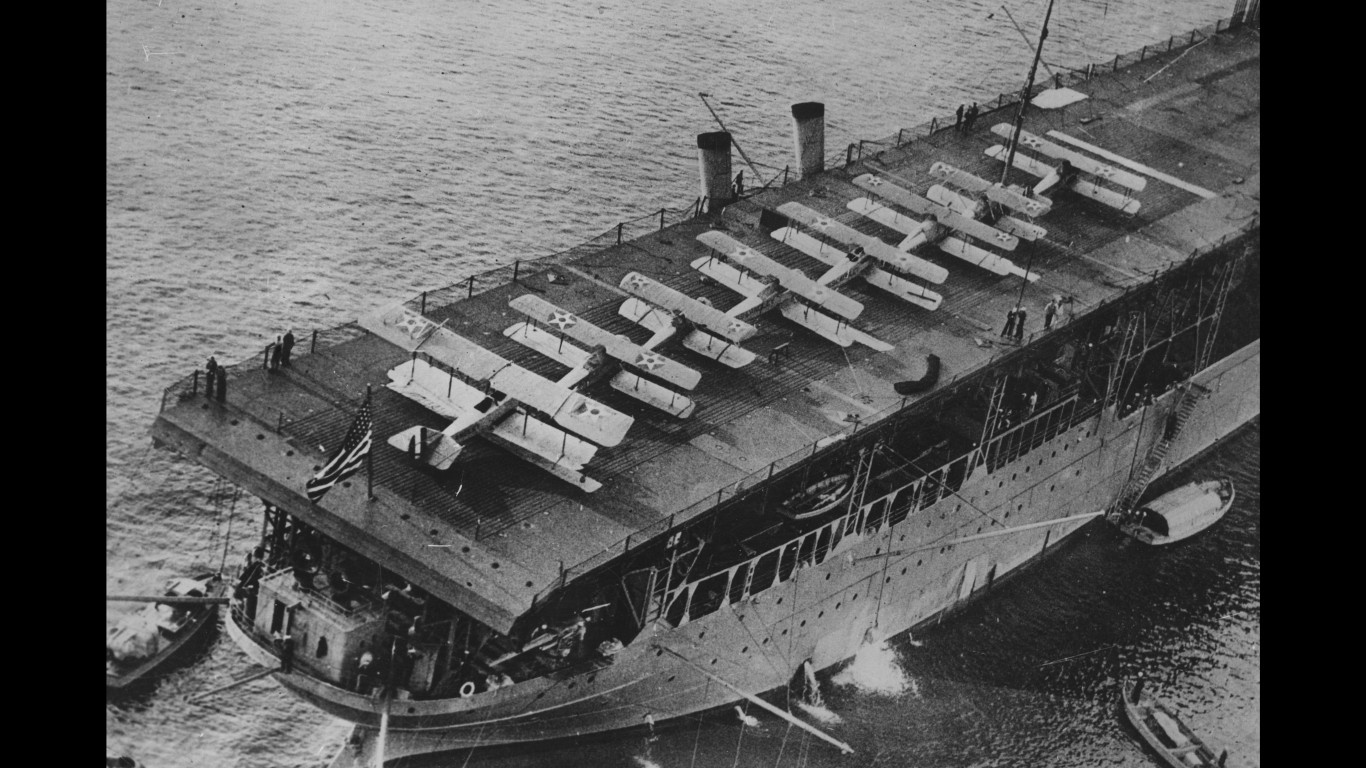
In the early part of the 20th century, the idea of an aircraft carrier was conceptualized by the French author, Clément Ader. He wrote in his book, L’Aviation Militaire, about a ship with a flat flight deck that would be capable of operating airplanes at sea. This theory was tested by Eugene Elyin in late 1910, when he launched from the naval cruiser turned makeshift carrier, the USS Birmingham. It wasn’t until 1911 that he successfully landed on a ship, the armored cruiser USS Pennsylvania.
However, it was the British Navy that introduced the world’s first true aircraft carrier in 1918, during World War I. The HMS Argus was built on a converted merchant ship hull and had an unobstructed, fully flat flight deck. The United States followed suit with the introduction of its converted collier ship, USS Langley, in 1920. Langley was instrumental in establishing the basic principles of carrier operations, although these floating cities wouldn’t enter service until 1927 with the USS Saratoga and the USS Lexington.
After the First World War, the development and production of aircraft carriers were put on hold with the Washington Naval Treaty of 1922. Also known as the Five-Power Treaty, signed by the United States, France, Japan, the United Kindom, and Italy, it intended to prevent an arms race and limited the production of aircraft carriers, battleships, and battlecruisers. By the 1930s, Japan and Italy refused to sign amended treaties and Germany would no longer adhere to them, setting the stage for the Second World War.
Aircraft carriers have been integral components of the United States Navy and have only increased in importance and firepower over the years. Their distinct history demonstrates how the Navy has continually redefined nautical warfare since World War II, which is when the importance of these ships became evident.
In response to the attack on Pearl Harbor, the USS Enterprise played a pivotal role in the Pacific War as the most decorated ship in the U.S. Navy. The era also saw the introduction of the Essex-class carriers, which formed the backbone of the U.S. naval fleet in the Pacific. (See the most highly decorated U.S. Navy ships of WWII.)
Using archives from the U.S. Navy and other sources, 24/7 Wall St. listed all aircraft carriers in the Navy’s history, including when they were commissioned and how long they remained in service. Carriers are listed in order of hull classification symbols.
Here are the first 33 aircraft carriers in US Navy history.
1. CV-1 Langley
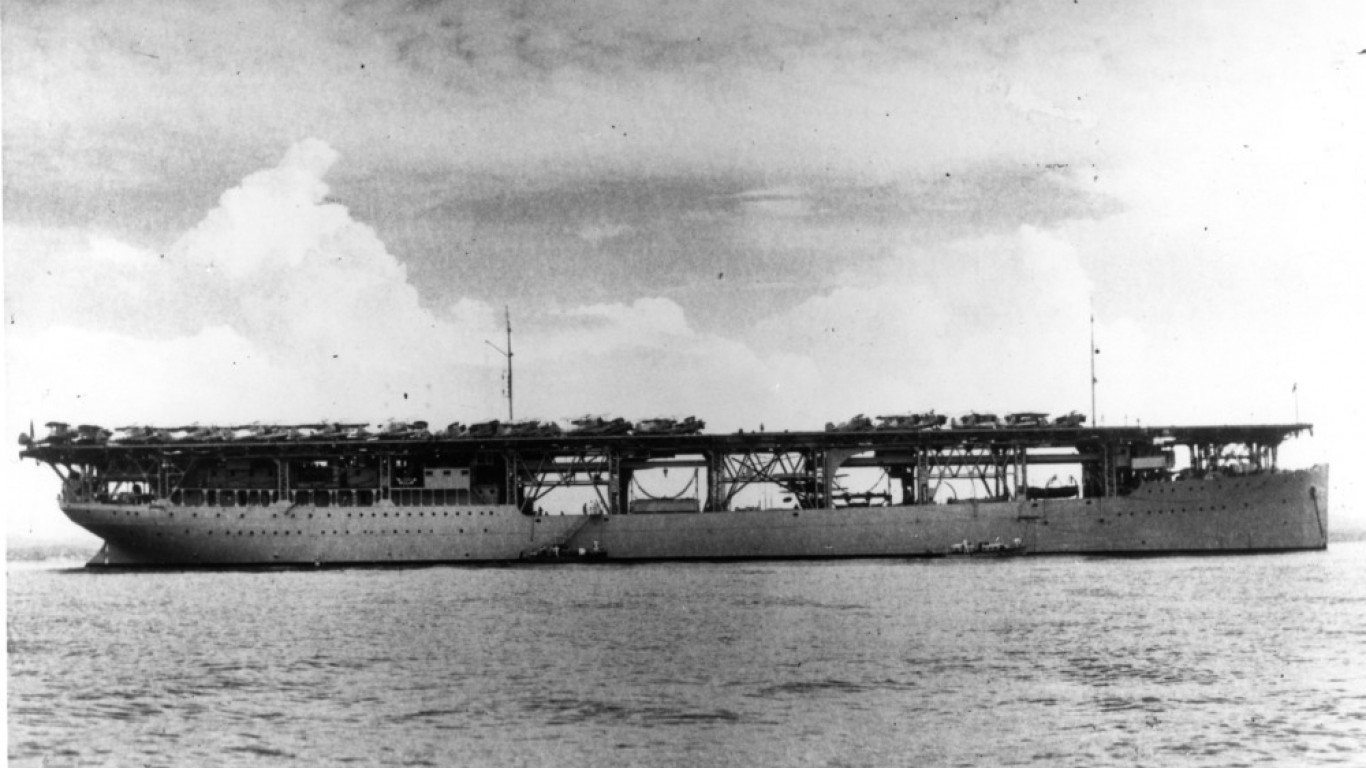
- Class: Langley
- Commissioned: March 20, 1922
- Service Life: 19 years, 11 months, and seven days
- Status: Scuttled and sunk south of Java
2. CV-2 Lexington
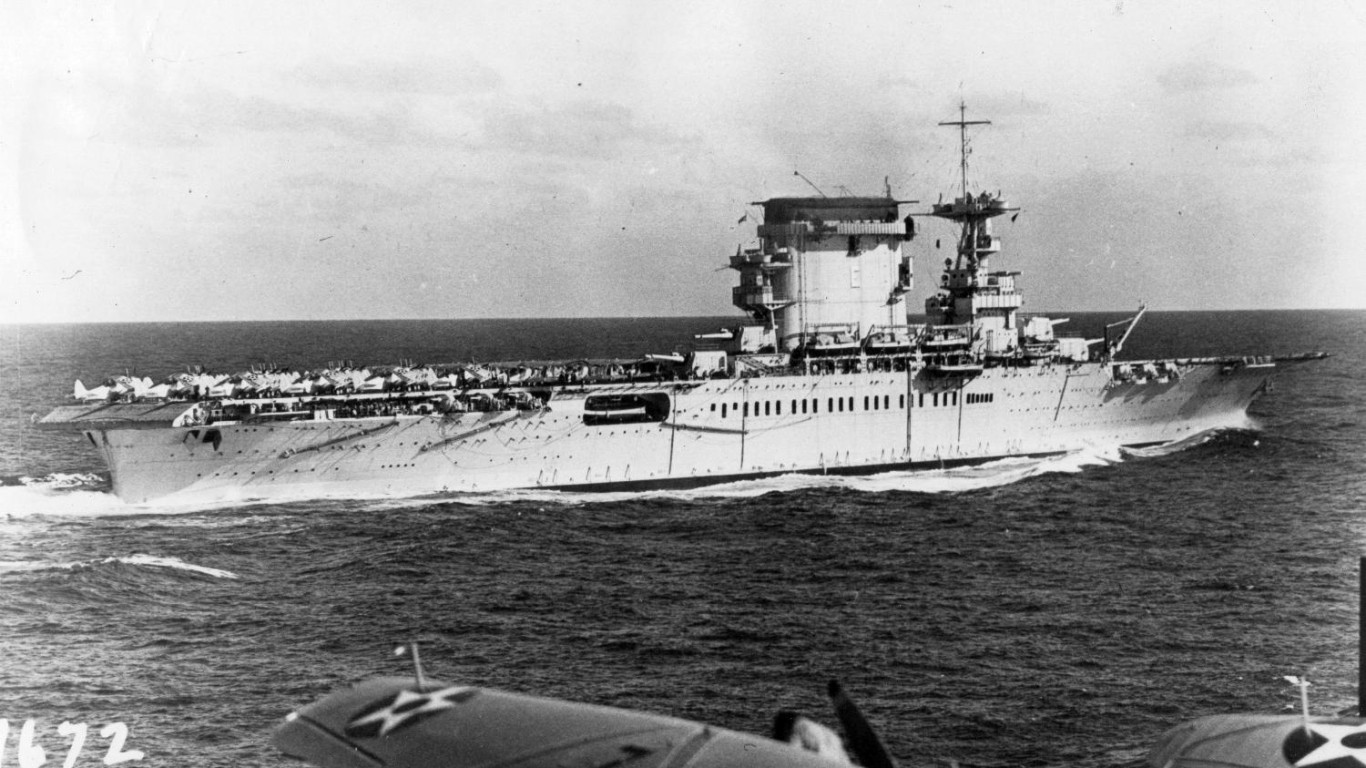
- Class: Lexington
- Commissioned: December 14, 1927
- Service life: 14 years, 4 months, and 24 days
- Status: Sunk in the Battle of the Coral Sea
3. CV-3 Saratoga
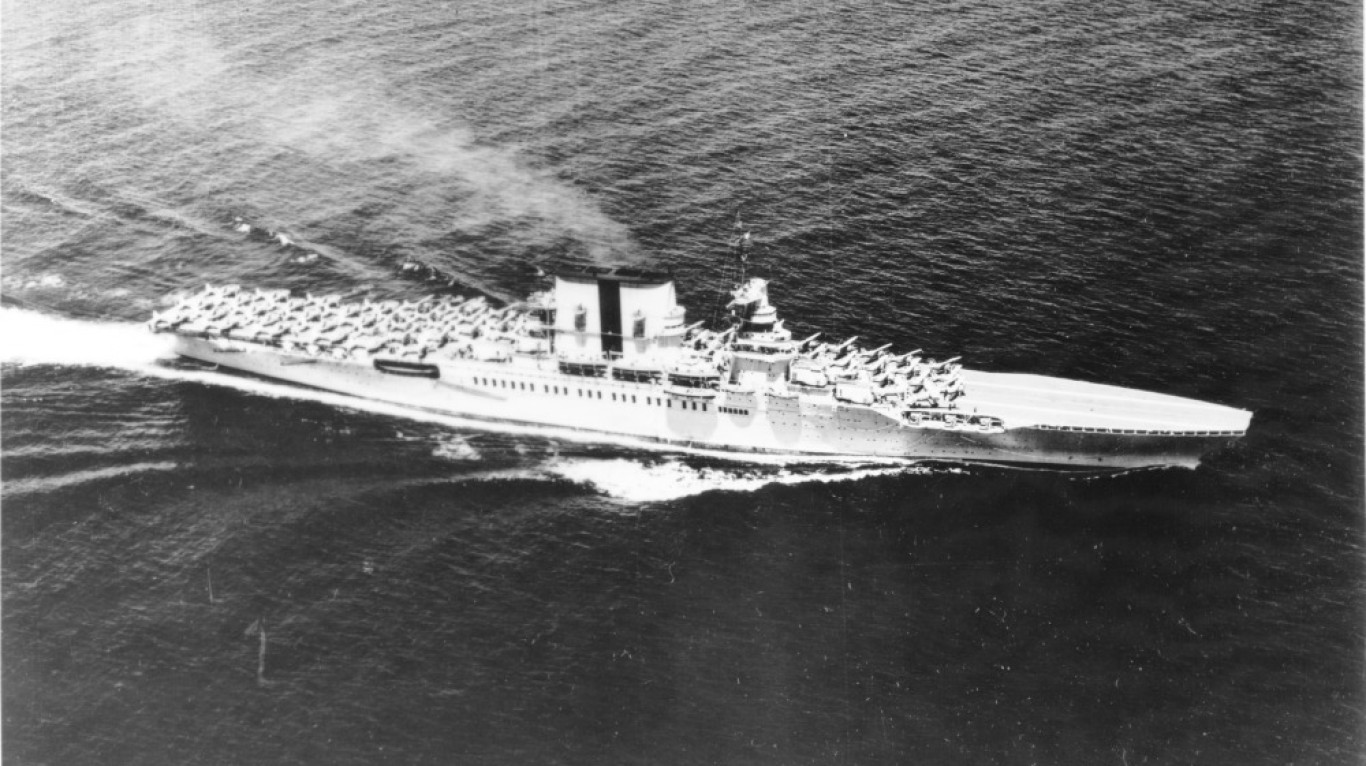
- Class: Lexington
- Commissioned: November 16, 1927
- Service life: 18 years, 8 months, and 12 days
- Status: Sunk in nuclear test target near Bikini Atoll
4. CV-4 Ranger
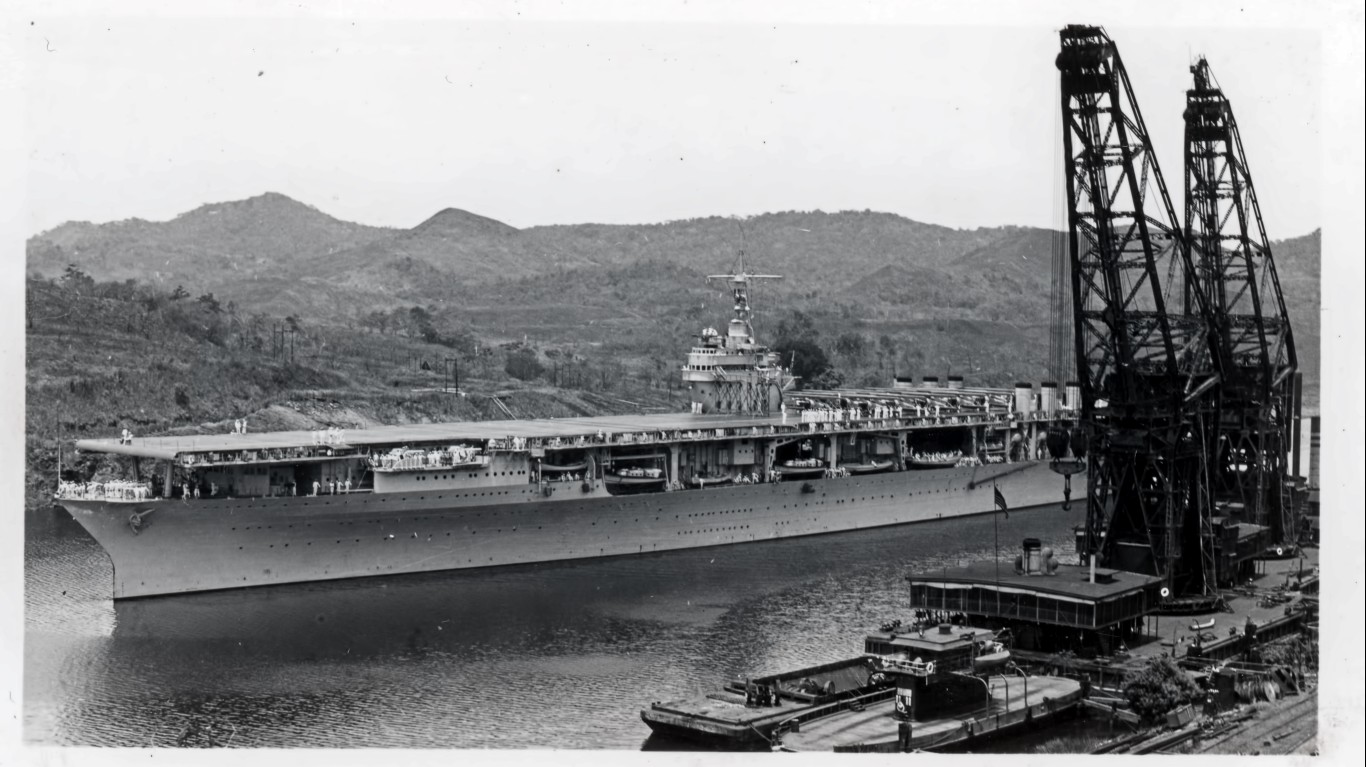
- Class: Ranger
- Commissioned: June 4, 1934
- Service life: 12 years, 4 months, and 14 days
- Status: Scrapped in 1947
5. CV-5 Yorktown
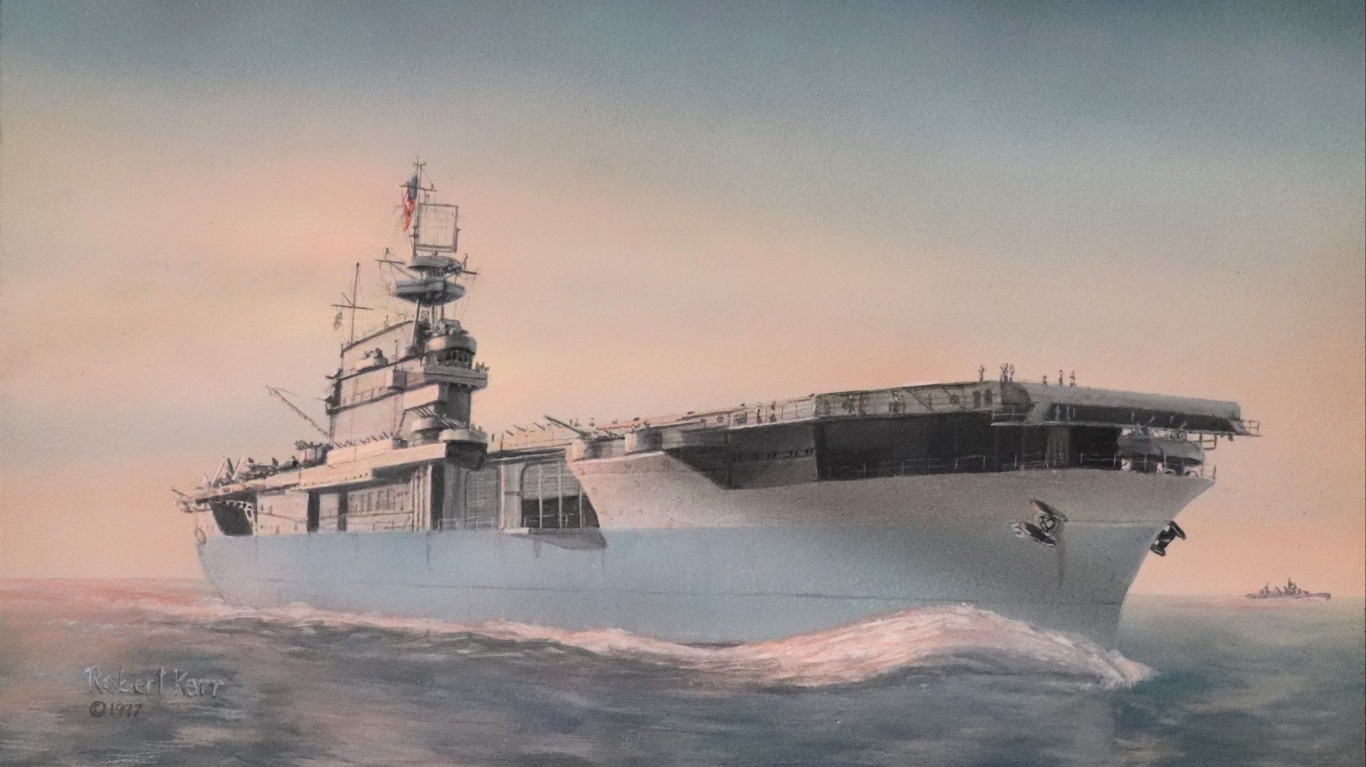
- Class: Yorktown
- Commissioned: September 30, 1937
- Service life: 4 years, 8 months, and 8 days
- Status: Sunk in the Battle of Midway
6. CV-6 Enterprise
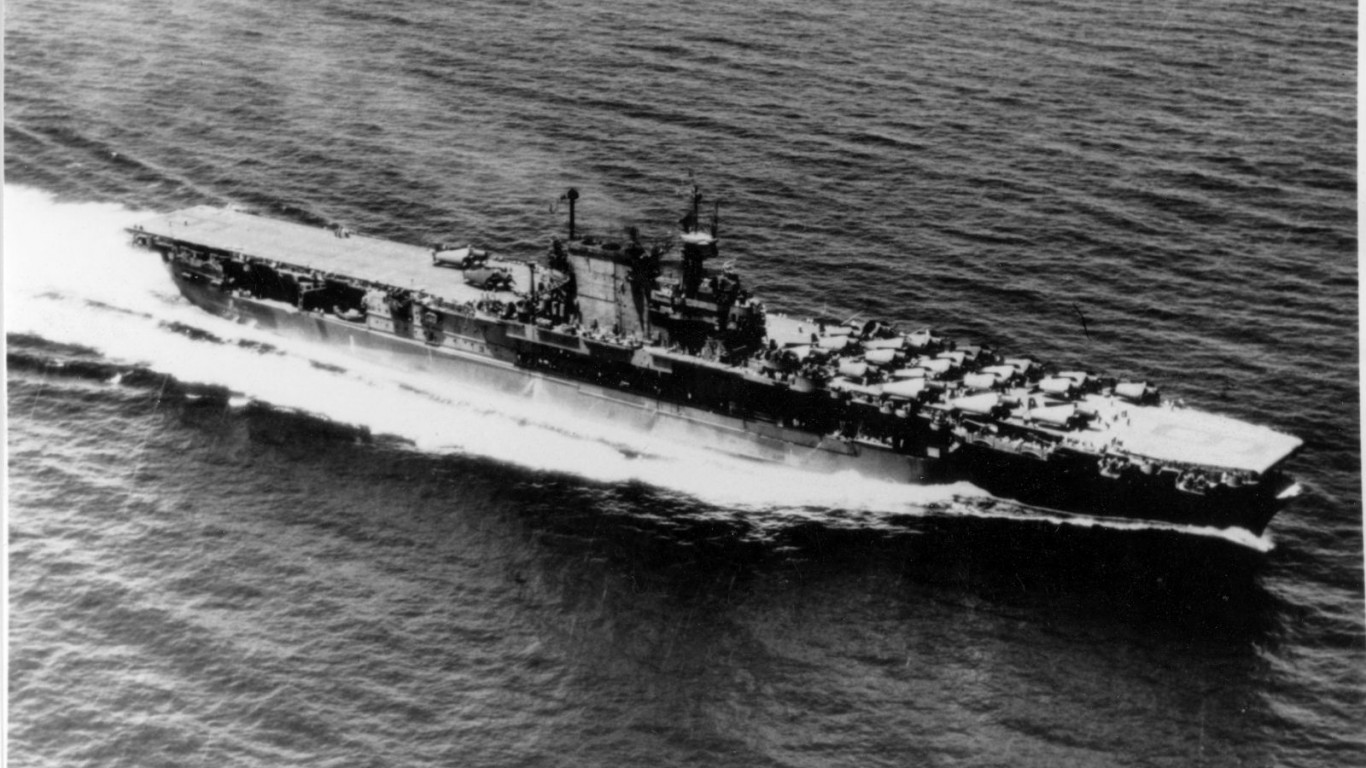
- Class: Yorktown
- Commissioned: May 12, 1938
- Service life: 8 years, 9 months, and 5 days
- Status: Scrapped in 1960
7. CV-7 Wasp
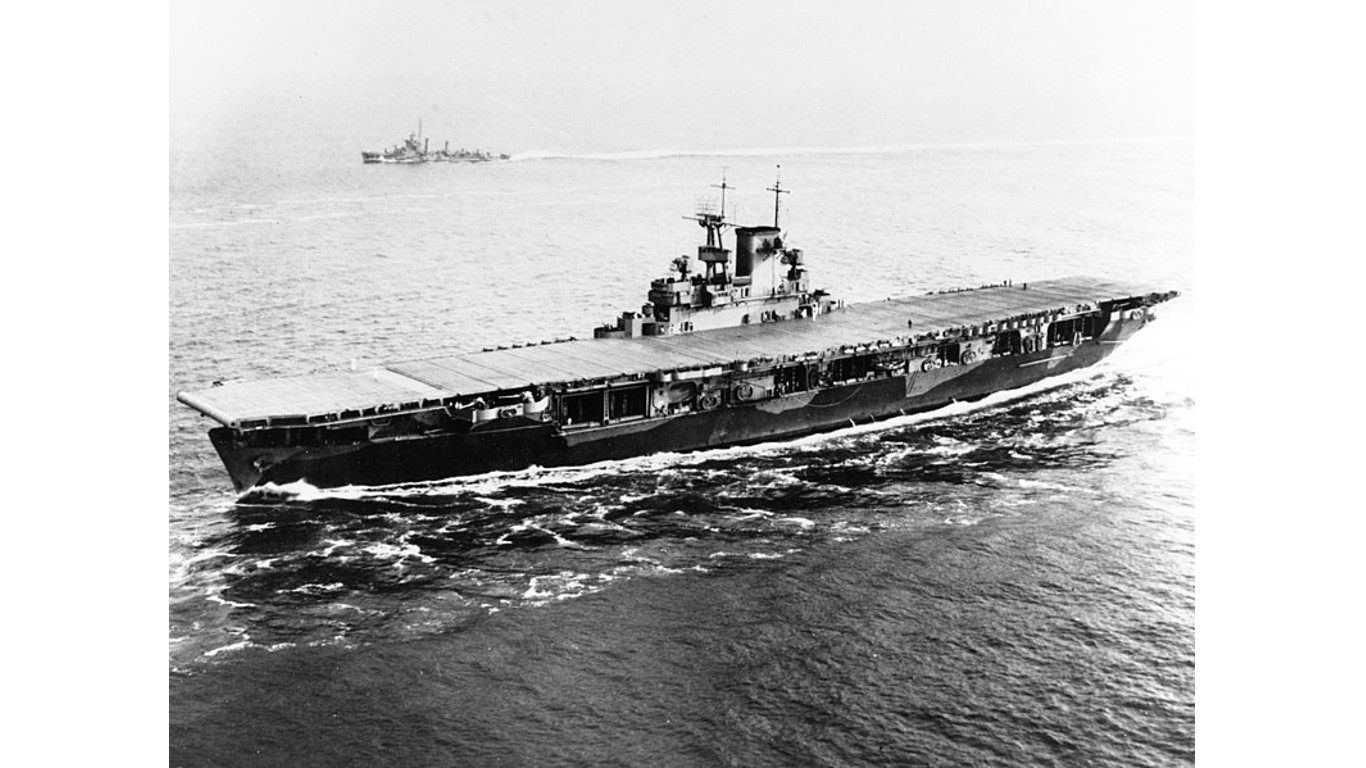
- Class: Wasp
- Commissioned: April 25, 1940
- Service life: 2 years, 4 months, and 21 days
- Status: Sunk during the Guadalcanal campaign
8. CV-8 Hornet
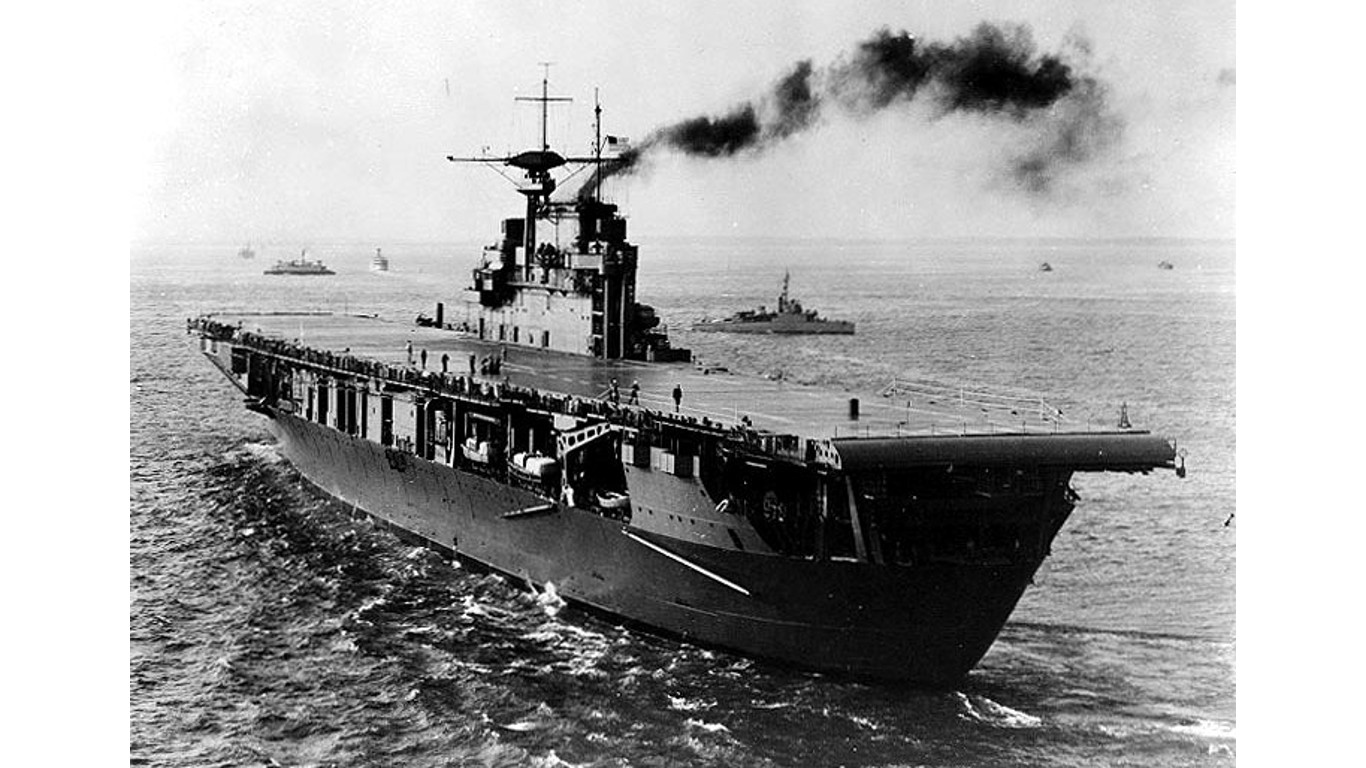
- Class: Yorktown
- Commissioned: October 20, 1941
- Service life: 1 year and 6 days
- Status: Sunk in the Battle of Santa Cruz Islands
9. CV-9 Essex
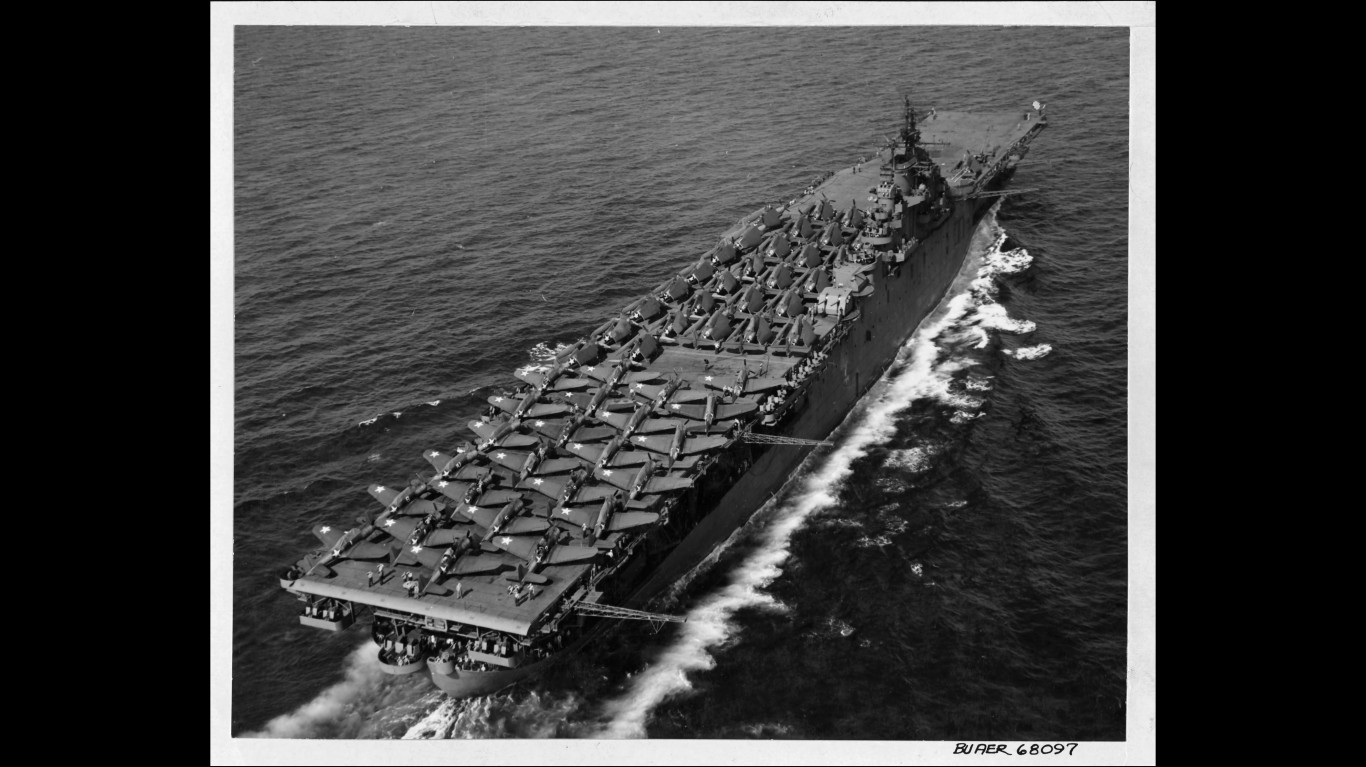
- Class: Essex
- Commissioned: December 31, 1942
- Service life: 26 years, 5 months, and 20 days
- Status: Scrapped in 1975
10. CV-10 Yorktown
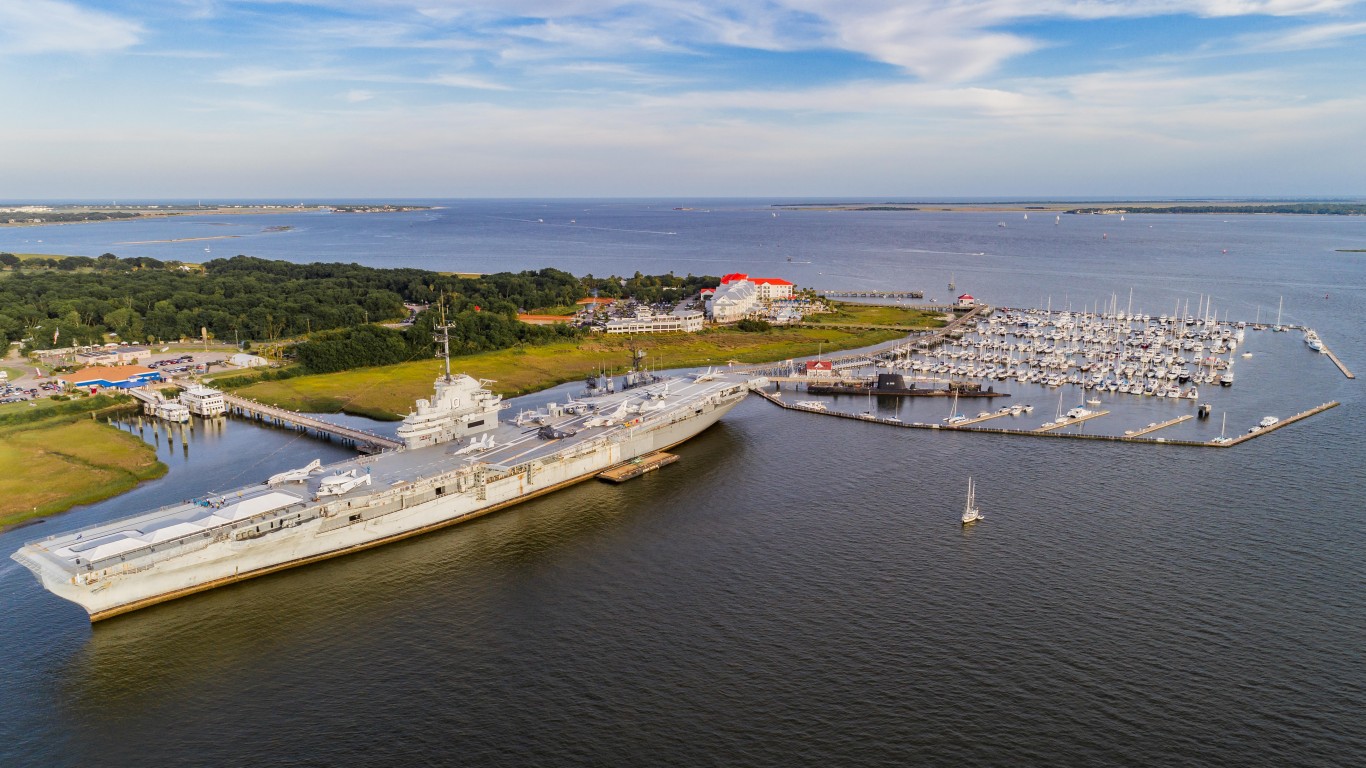
- Class: Essex
- Commissioned: April 15, 1943
- Service life: 27 years, 2 months, and 12 days
- Status: Preserved at the Patriot’s Point Naval & Maritime Museum–Mount Pleasant, South Carolina
11. CV-11 Intrepid
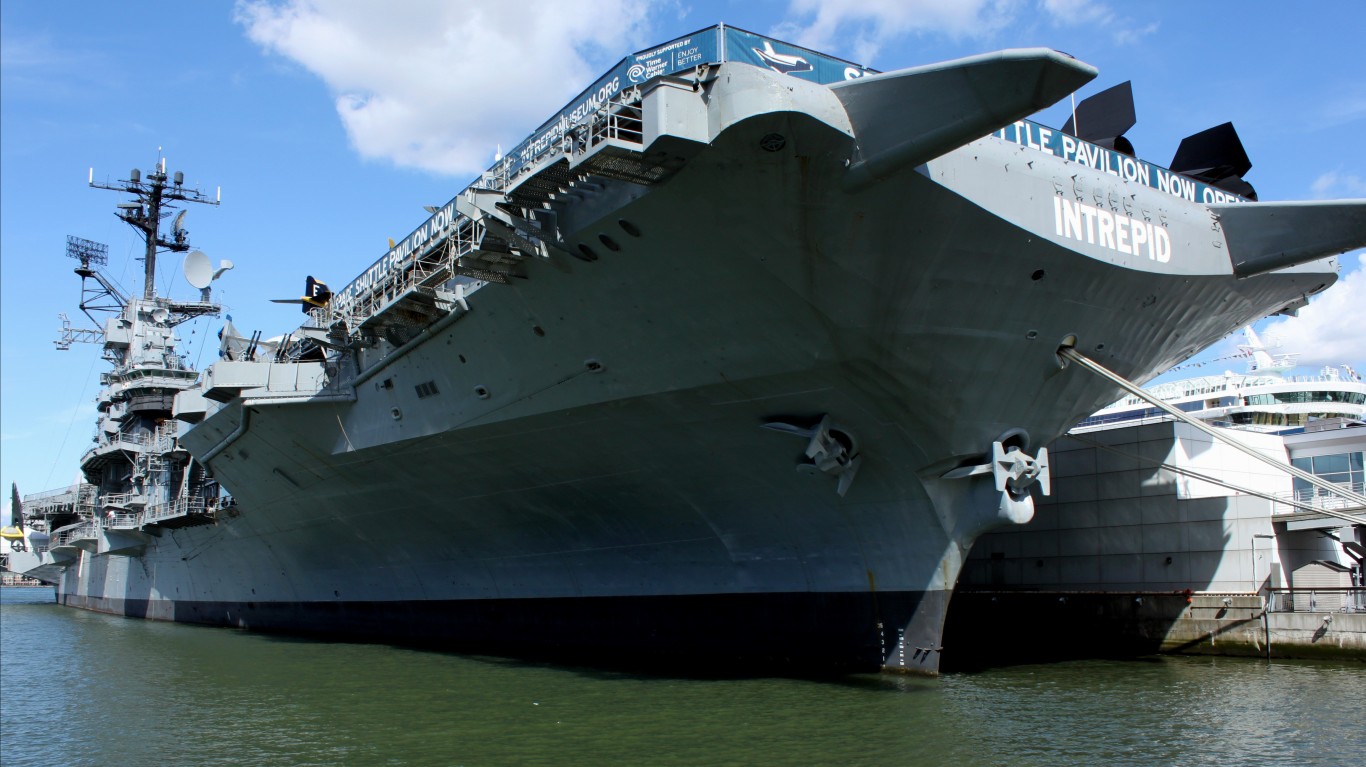
- Class: Essex
- Commissioned: August 16, 1943
- Service life: 30 years, 6 months, and 27 days
- Status: Preserved at the Intrepid Sea, Air & Space Museum–New York, New York
12. CV-12 Hornet

- Class: Essex
- Commissioned: November 20, 1943
- Service life: 26 years, 6 months, and 6 days
- Status: Preserved at USS Hornet Museum–Alameda, California
13. CV-13 Franklin

- Class: Essex
- Commissioned: January 31, 1944
- Service life: 2 years, 11 months and 17 days
- Status: Scrapped in 1966
14. CV-14 Ticonderoga
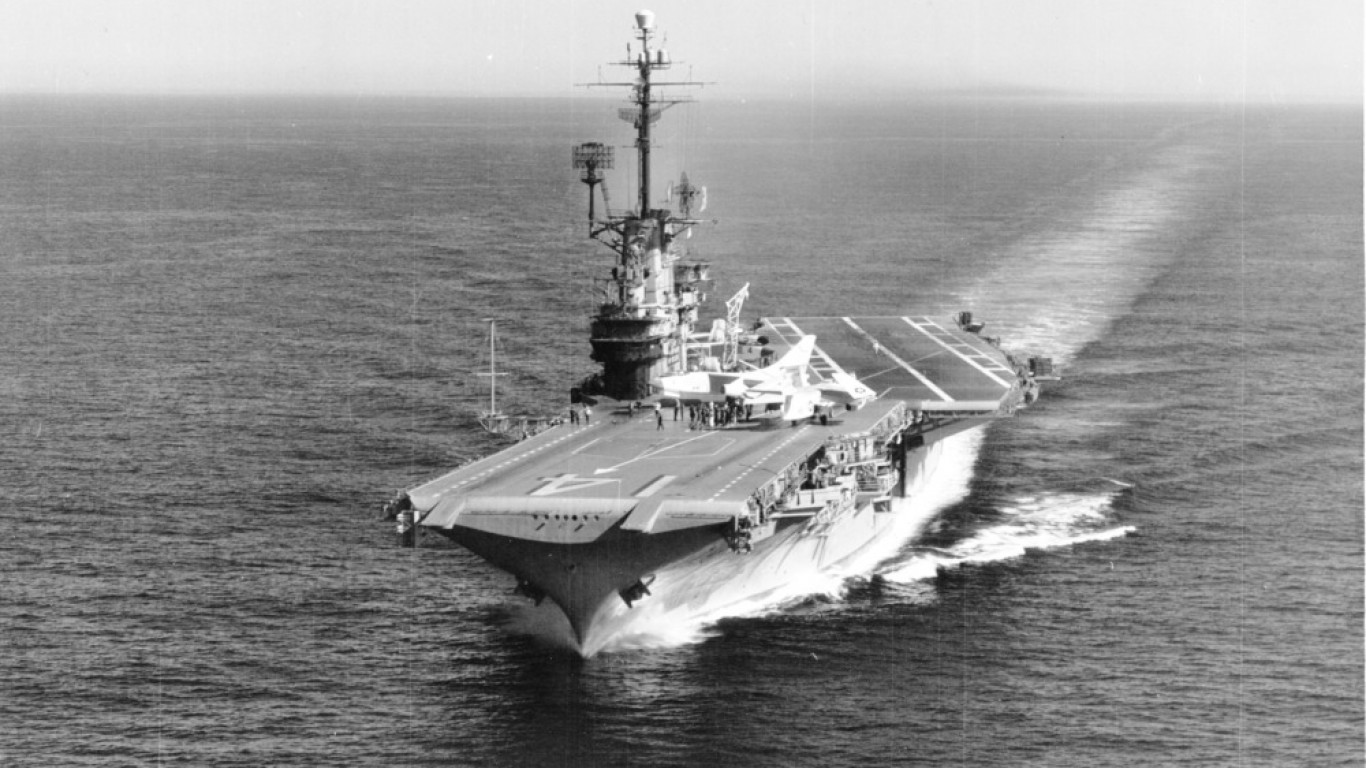
- Class: Essex (extended bow)
- Commissioned: May 8, 1944
- Service life: 29 years, 3 months, 24 days
- Status: Scrapped in 1975
15. CV-15 Randolph
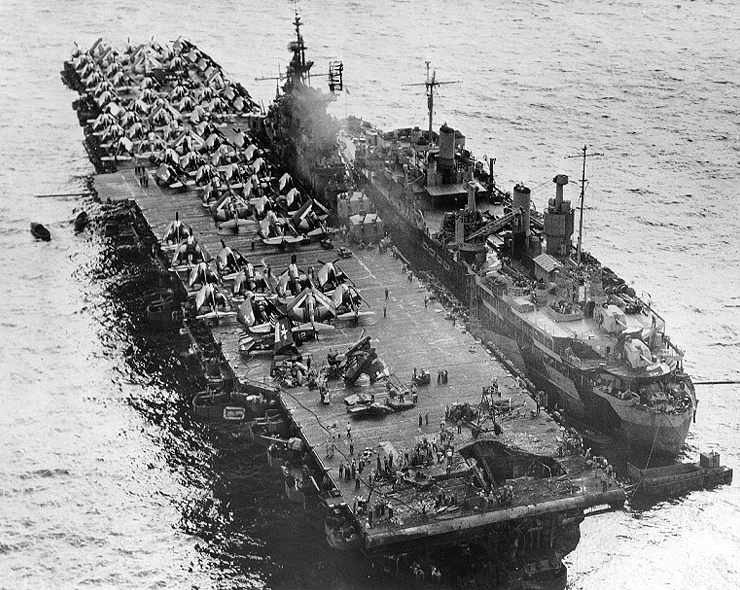
- Class: Essex (extended bow)
- Commissioned: October 9, 1933
- Service life: 24 years, 4 months, and 4 days
- Status: Scrapped in 1975
16. CV-16 Lexington
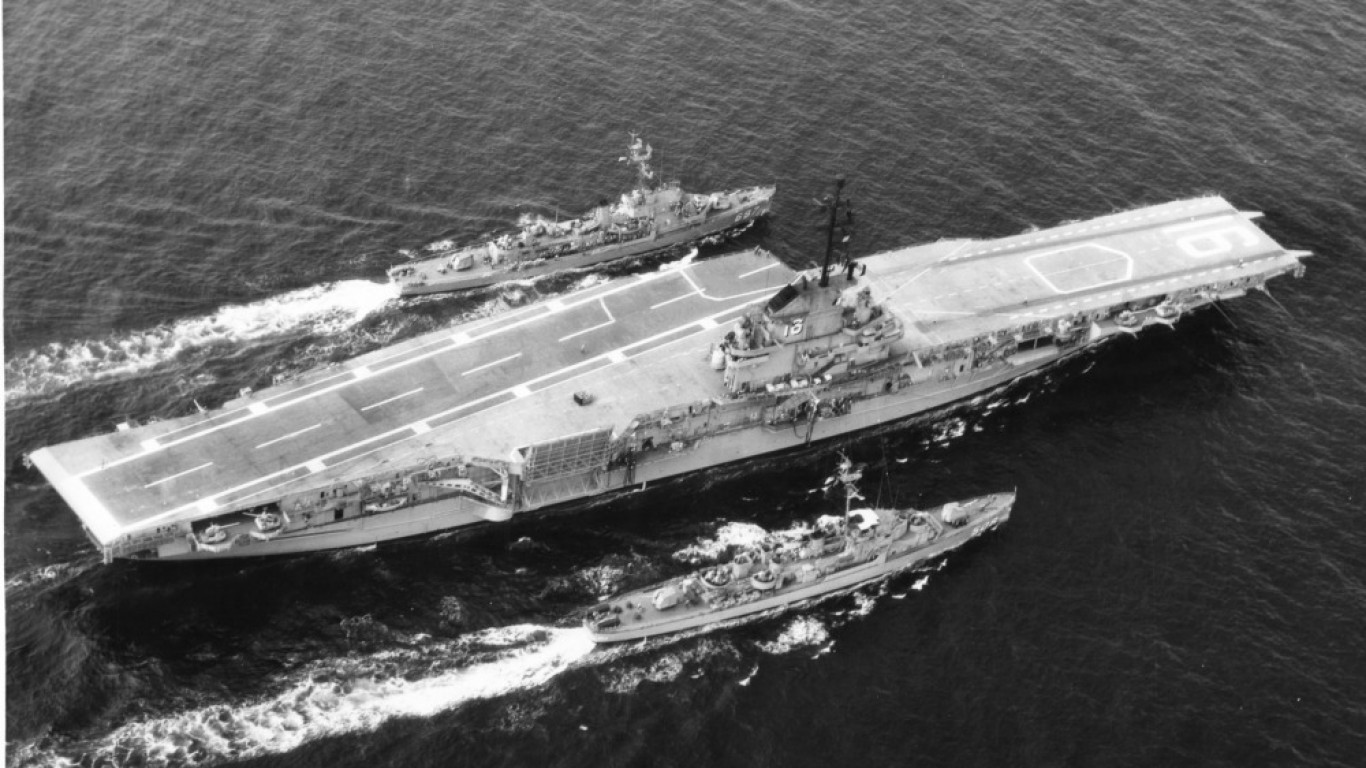
- Class: Essex
- Commissioned: February 17, 1943
- Service life: 48 years, 8 months, and 22 days
- Status: Preserved at USS Lexington Museum On The Bay–Corpus Christi, Texas
17. CV-17 Bunker Hill
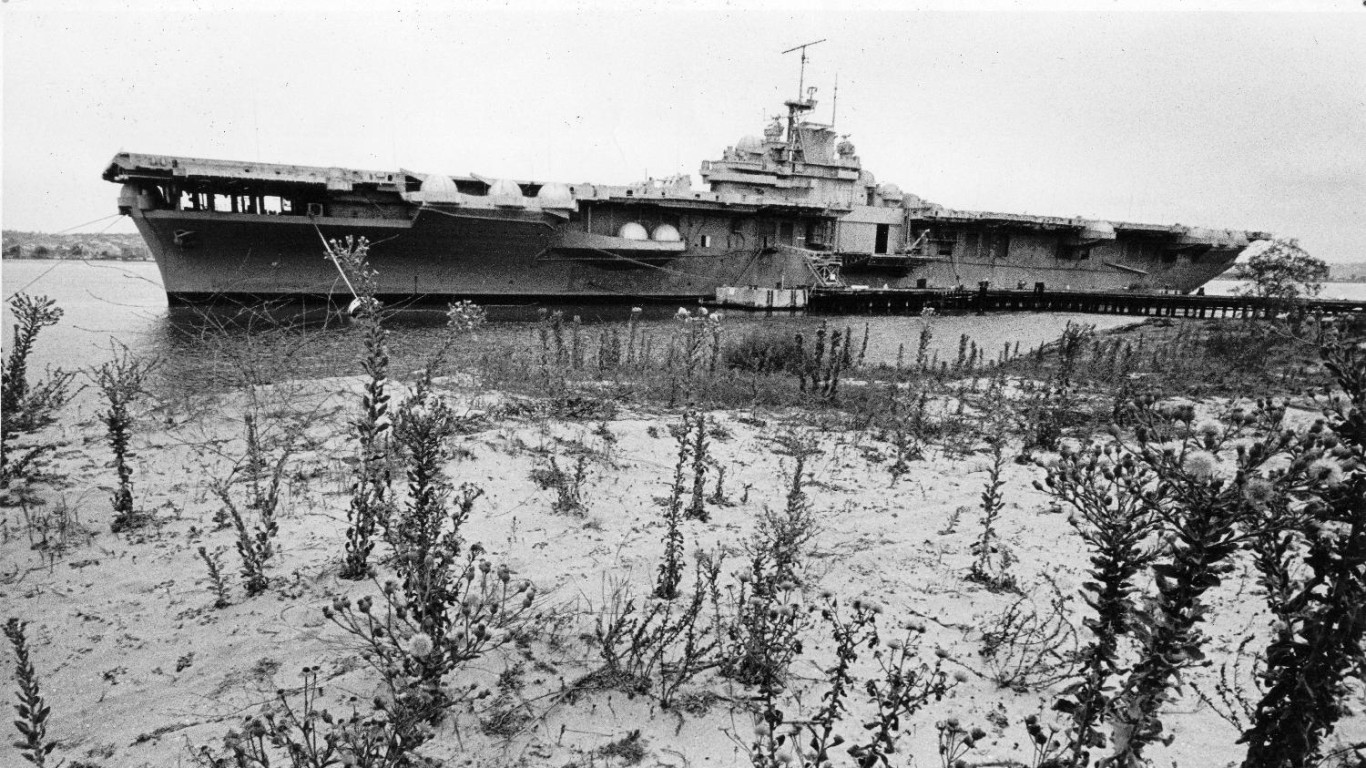
- Class: Essex
- Commissioned: May 25, 1953
- Service life: 4 years, 1 month, and 14 days
- Status: Scrapped in 1973
18. CV-18 Wasp
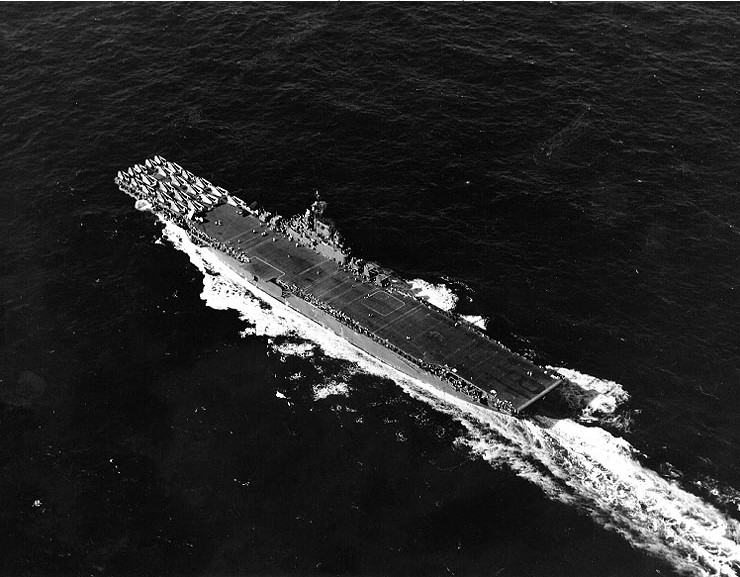
- Class: Essex
- Commissioned: November 24, 1943
- Service life: 28 years, 7 months, and 7 days
- Status: Scrapped in 1973
19. CV-19 Hancock
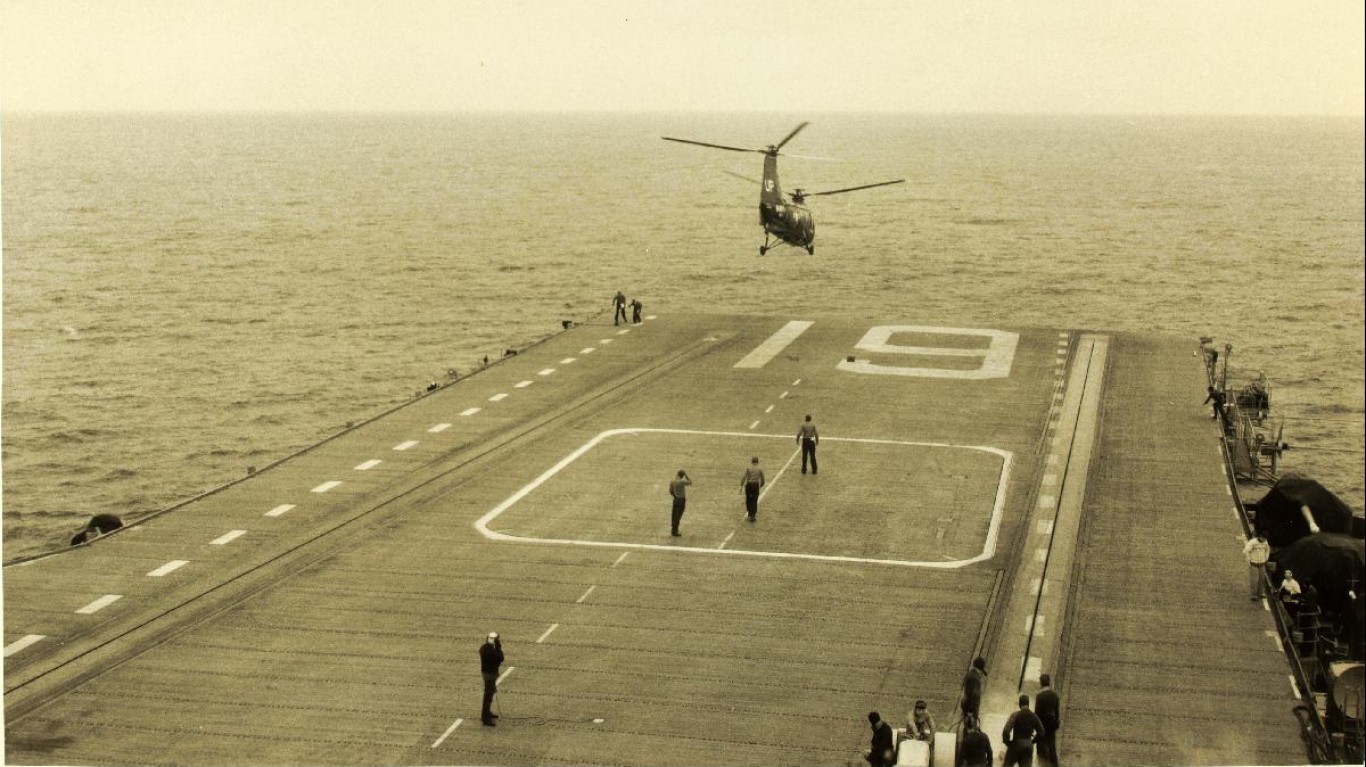
- Class: Essex (extended bow)
- Commissioned: April 15, 1944
- Service life: 31 years, 9 months, and 15 days
- Status: Scrapped in 1976
20. CV-20 Bennington
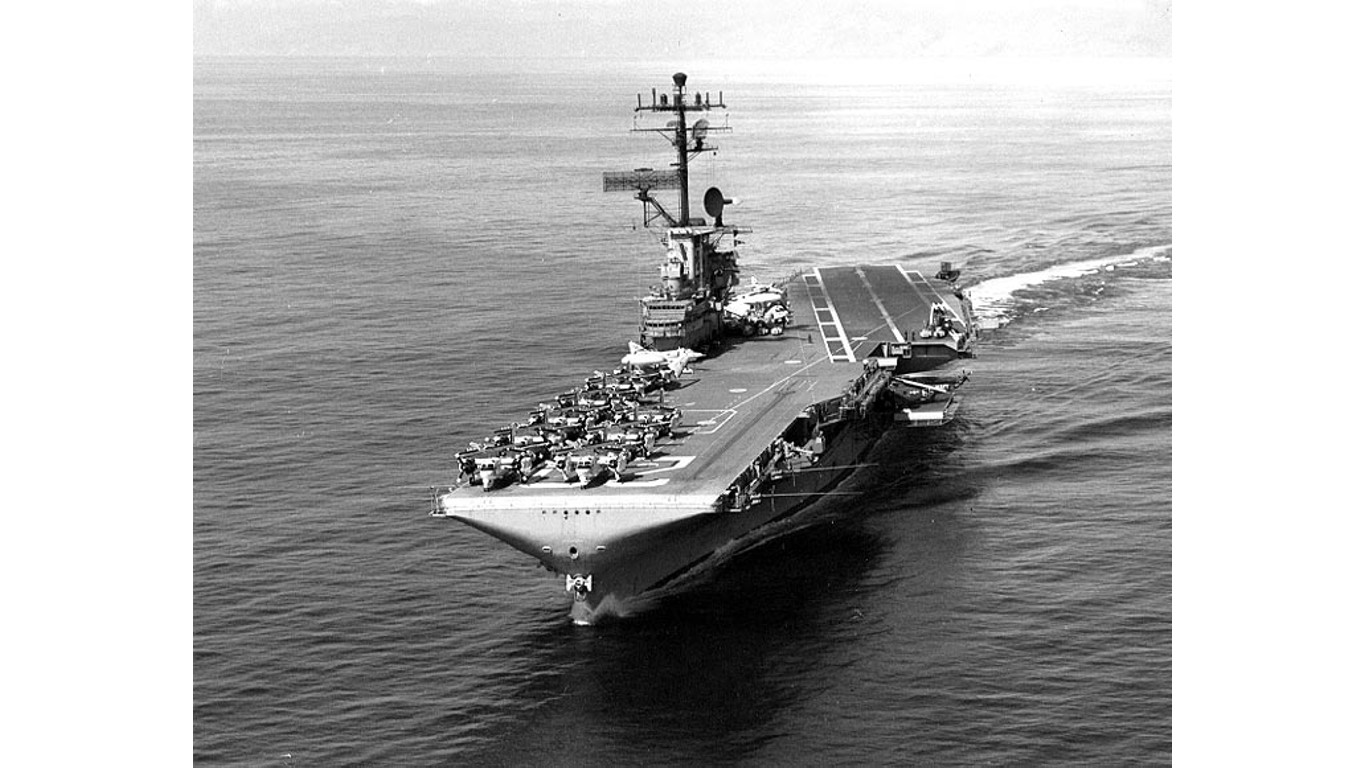
- Class: Essex
- Commissioned: August 6, 1944
- Service life: 25 years, 5 months, and 9 days
- Status: Scrapped in 1944
21. CV-21 Boxer
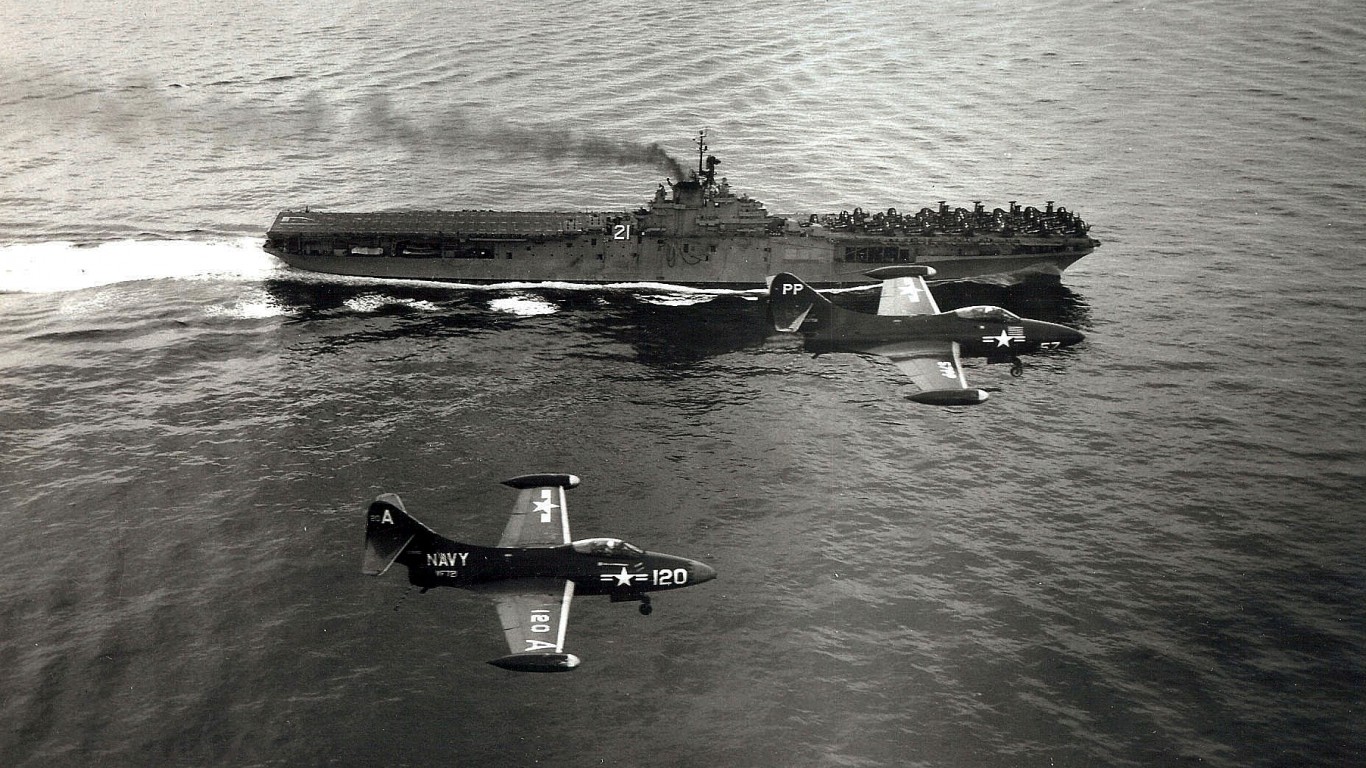
- Class: Essex (extended bow)
- Commissioned: April 16, 1945
- Service life: 24 years, 7 months, and 15 days
- Status: Scrapped in 1971
22. CVL-22 Independence
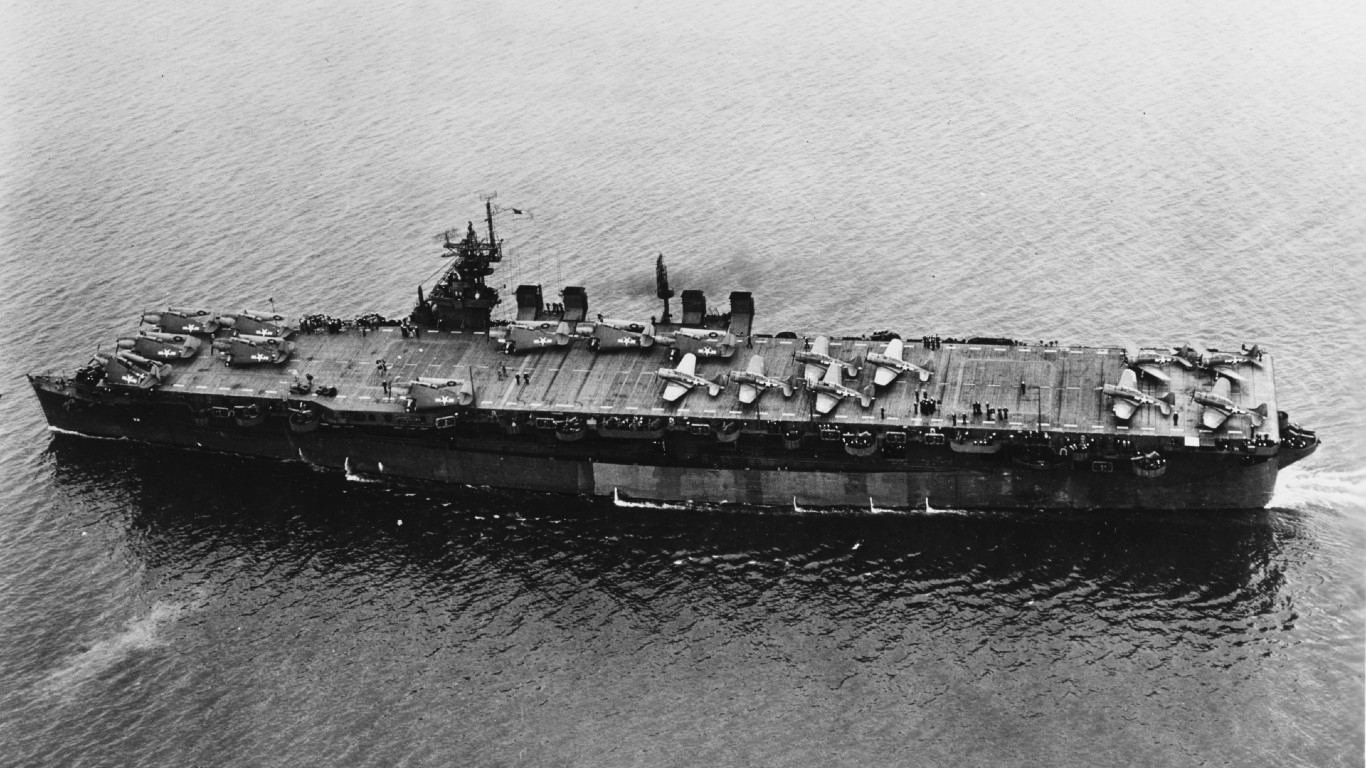
- Class: Independence
- Commissioned: January 14, 1943
- Service life: 3 years, 7 months, and 14 days
- Status: Scuttled in 1951
23. CVL-23 Princeton
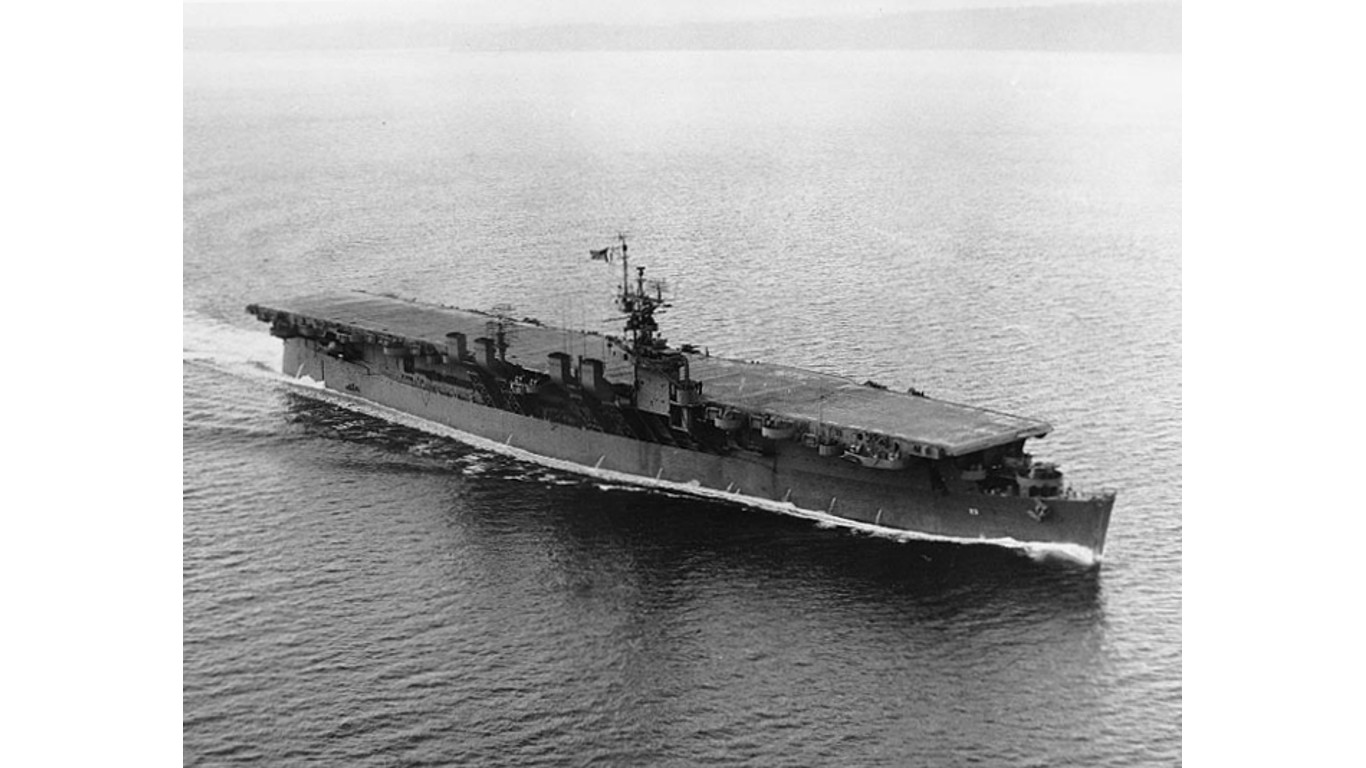
- Class: Independence
- Commissioned: February 25, 1943
- Service life: 1 year, 7 months, and 29 days
- Status: Sunk in the Battle of Leyte Gulf
24. CVL-24 Belleau Wood
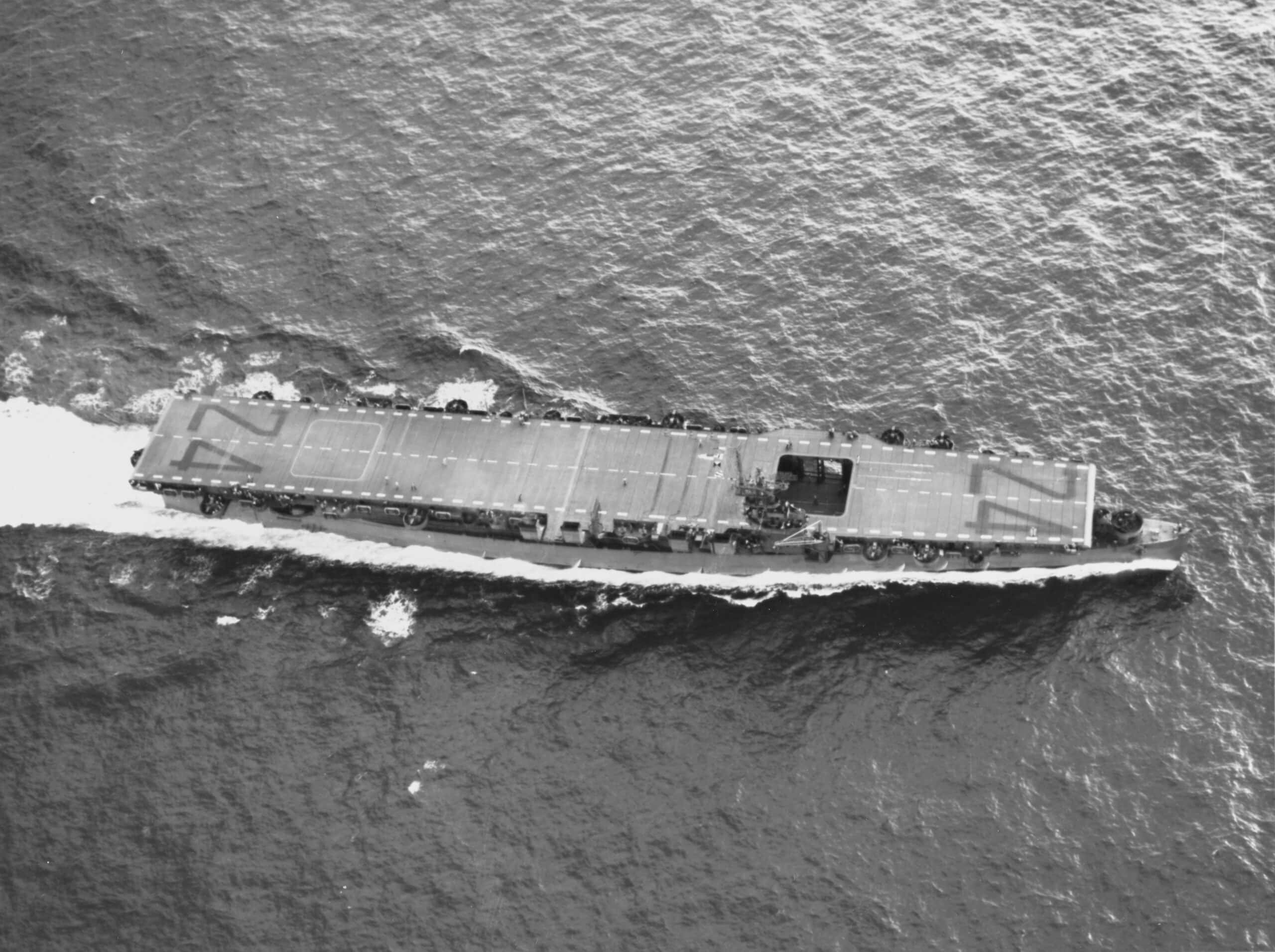
- Class: Independence
- Commissioned: March 31, 1943
- Service life: 3 years, 9 months, and 13 days
- Status: Scrapped in 1960
25. CVL-25 Cowpens
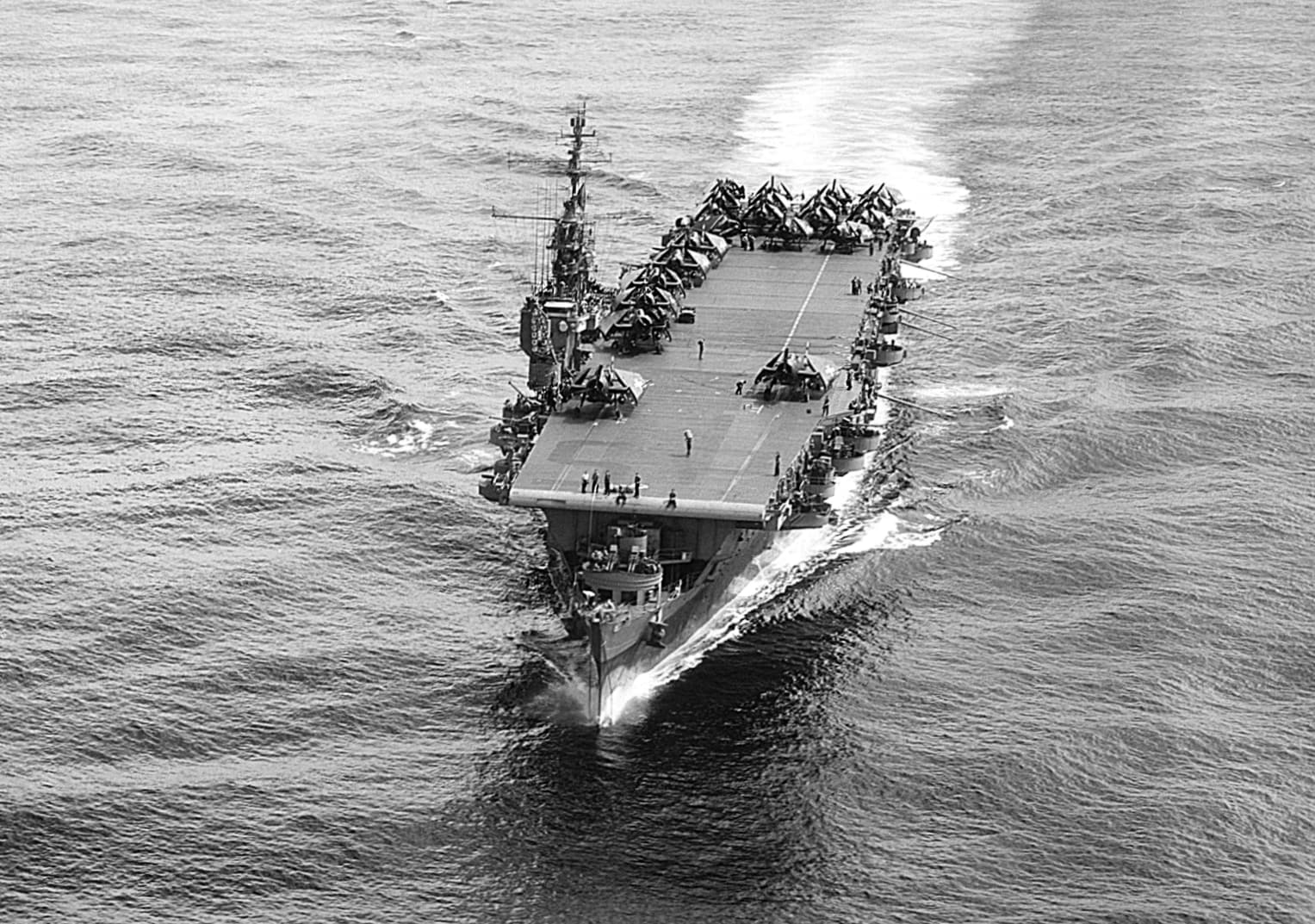
- Class: Independence
- Commissioned: May 28, 1943
- Service life: 3 years, 7 months, and 16 days
- Status: Scrapped in 1960
26. CVL-26 Monterey
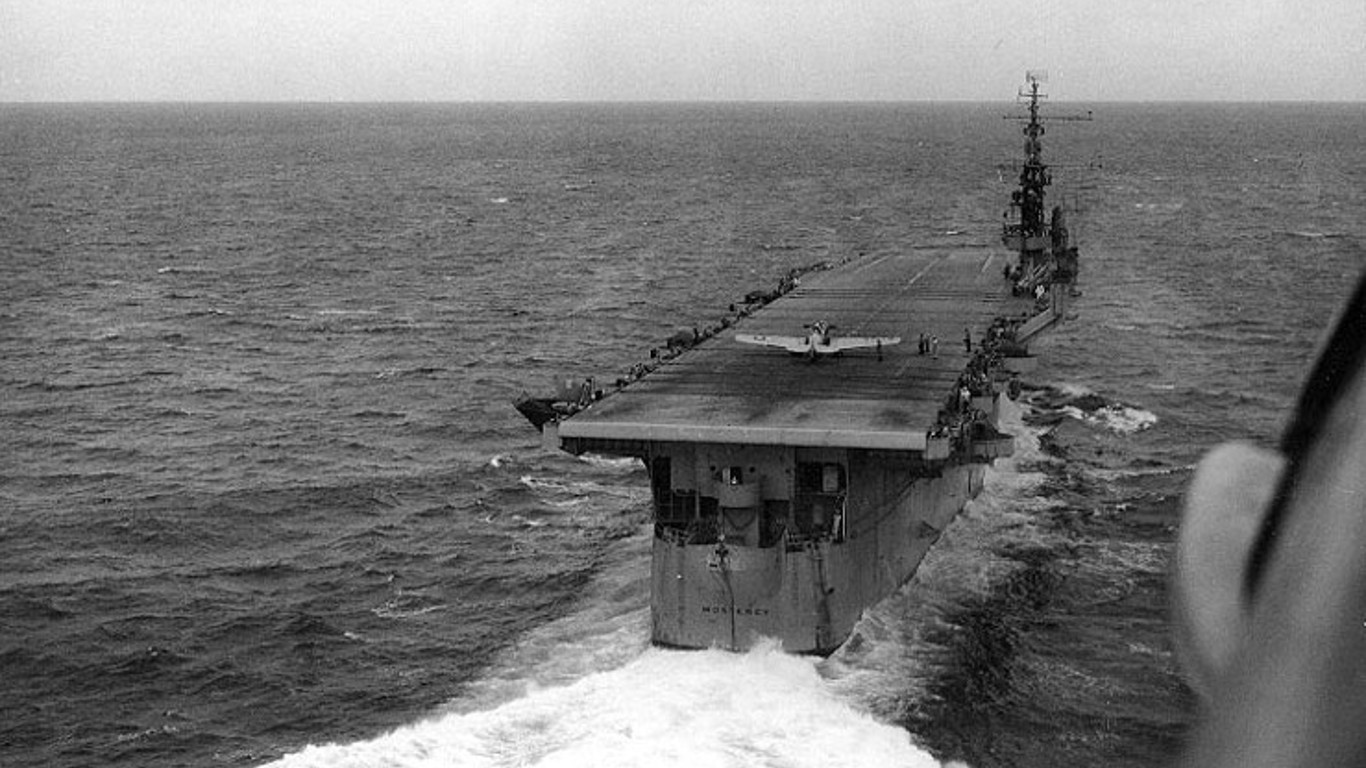
- Class: Independence
- Commissioned: June 17, 1943
- Service life: 12 years, 6 months, and 30 days
- Status: Scrapped in 1971
27. CVL-27 Langley
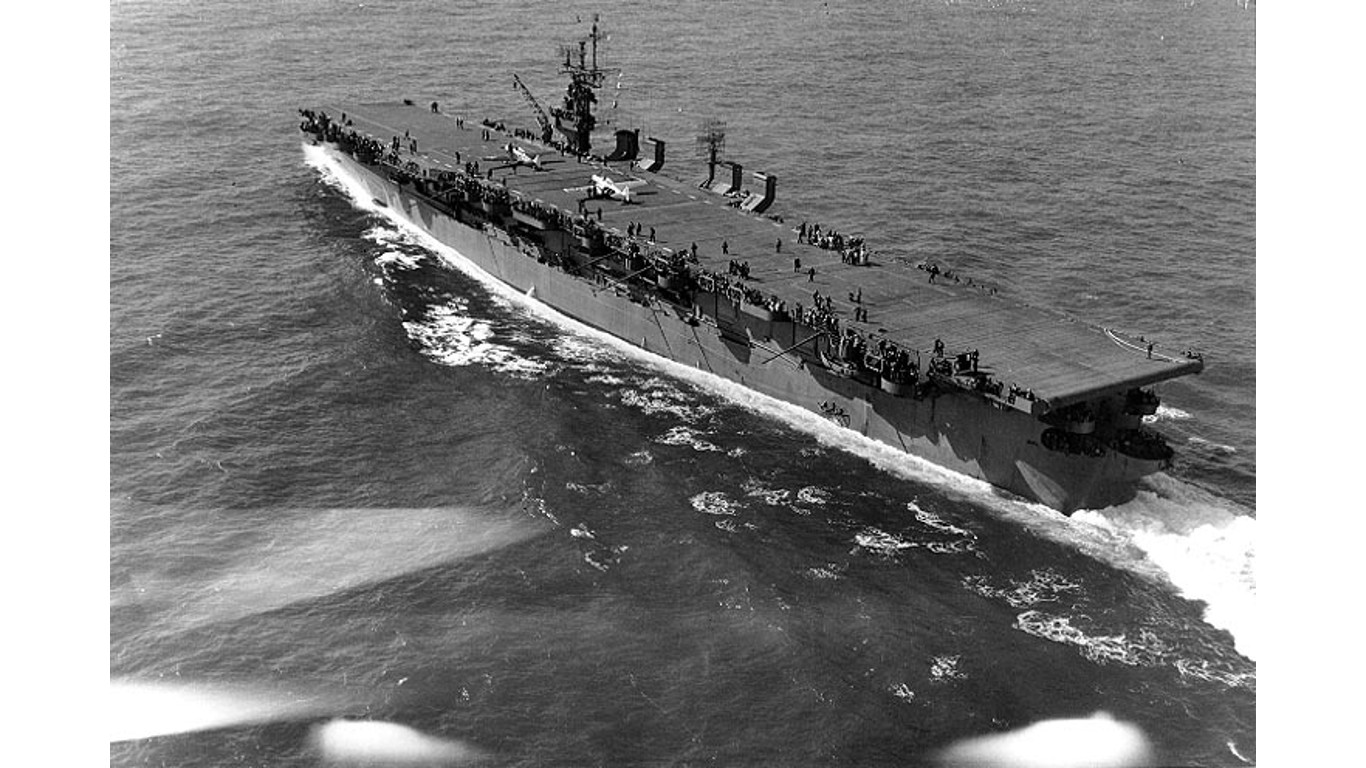
- Class: Independence
- Commissioned: August 31, 1943
- Service life: 3 years, 5 months, and 11 days
- Status: Scrapped in 1964
28. CVL-28 Cabot
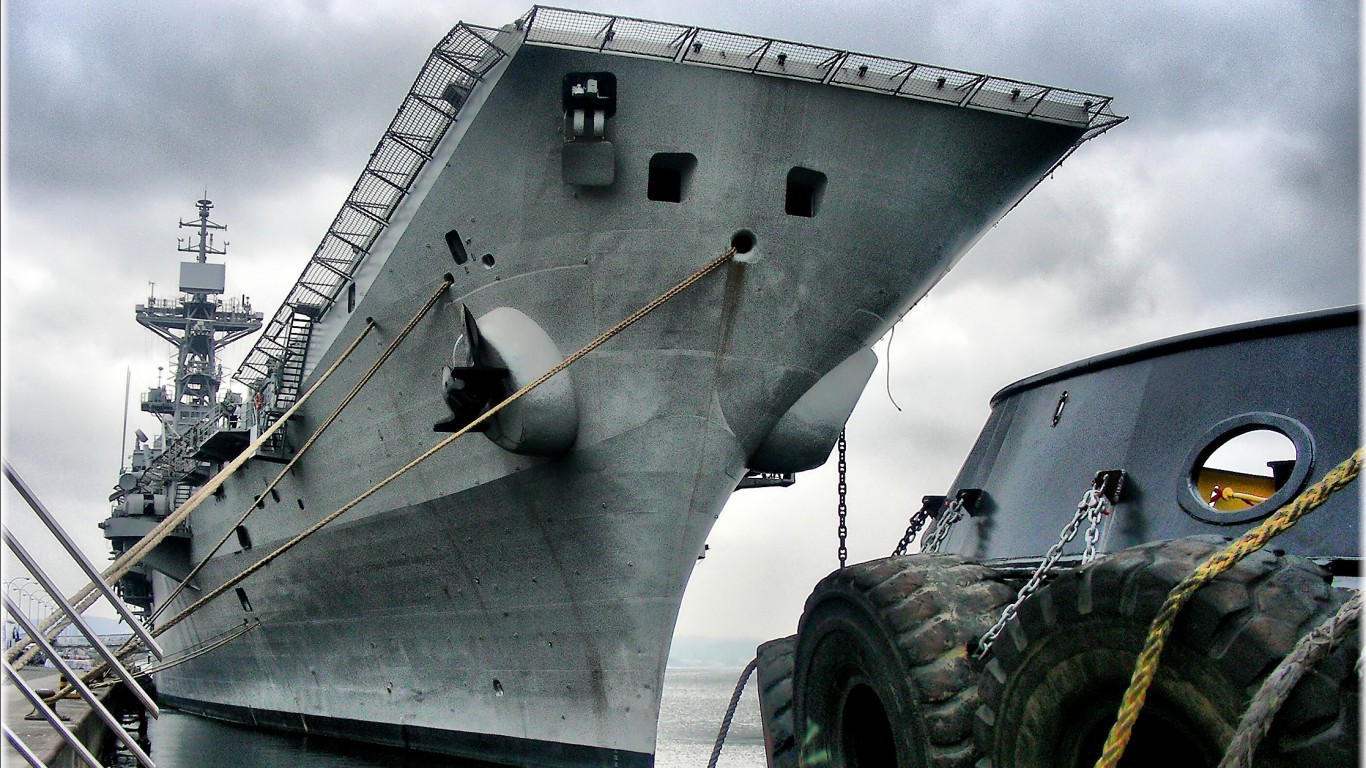
- Class: Independence
- Commissioned: July 24, 1943
- Service life: 11 years, 5 months, and 28 days
- Status: Scrapped in 2002
29. CVL-29 Bataan
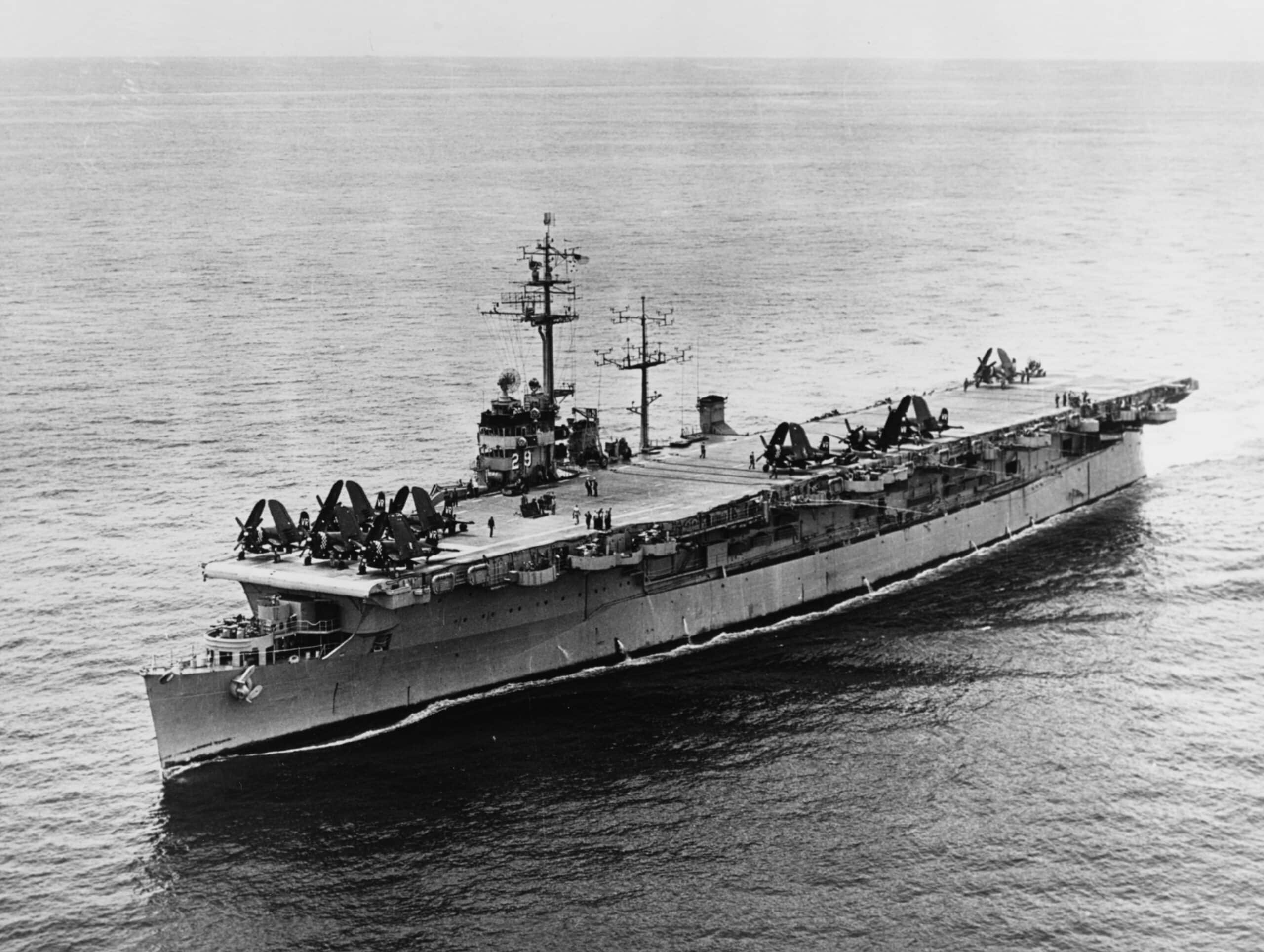
- Class: Independence
- Commissioned: November 17, 1943
- Service life: 10 years, 4 months, and 23 days
- Status: Scrapped in 1961
30. CVL-30 San Jacinto
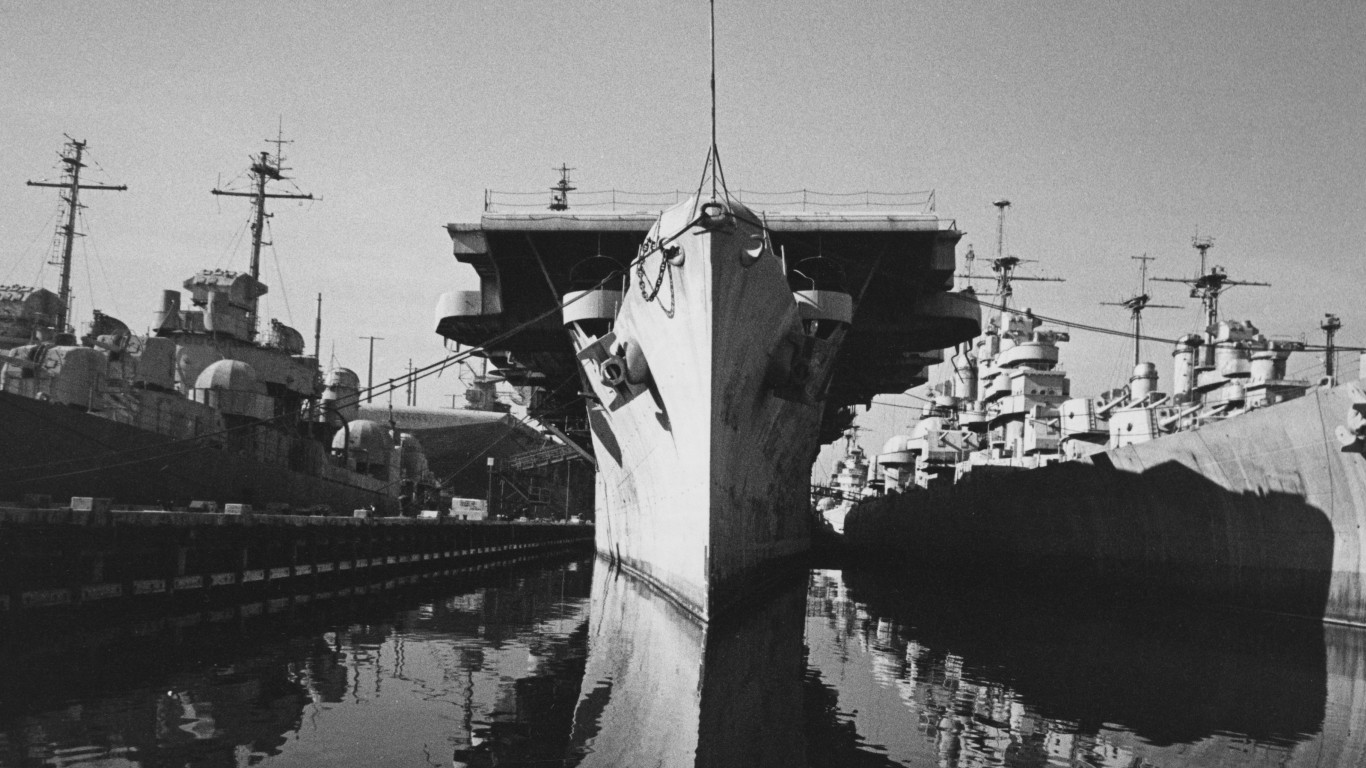
- Class: Independence
- Commissioned: December 15, 1943
- Service life: 3 years, 2 months, and 14 days
- Status: Scrapped in 1972
31. CV-31 Bon Homme Richard
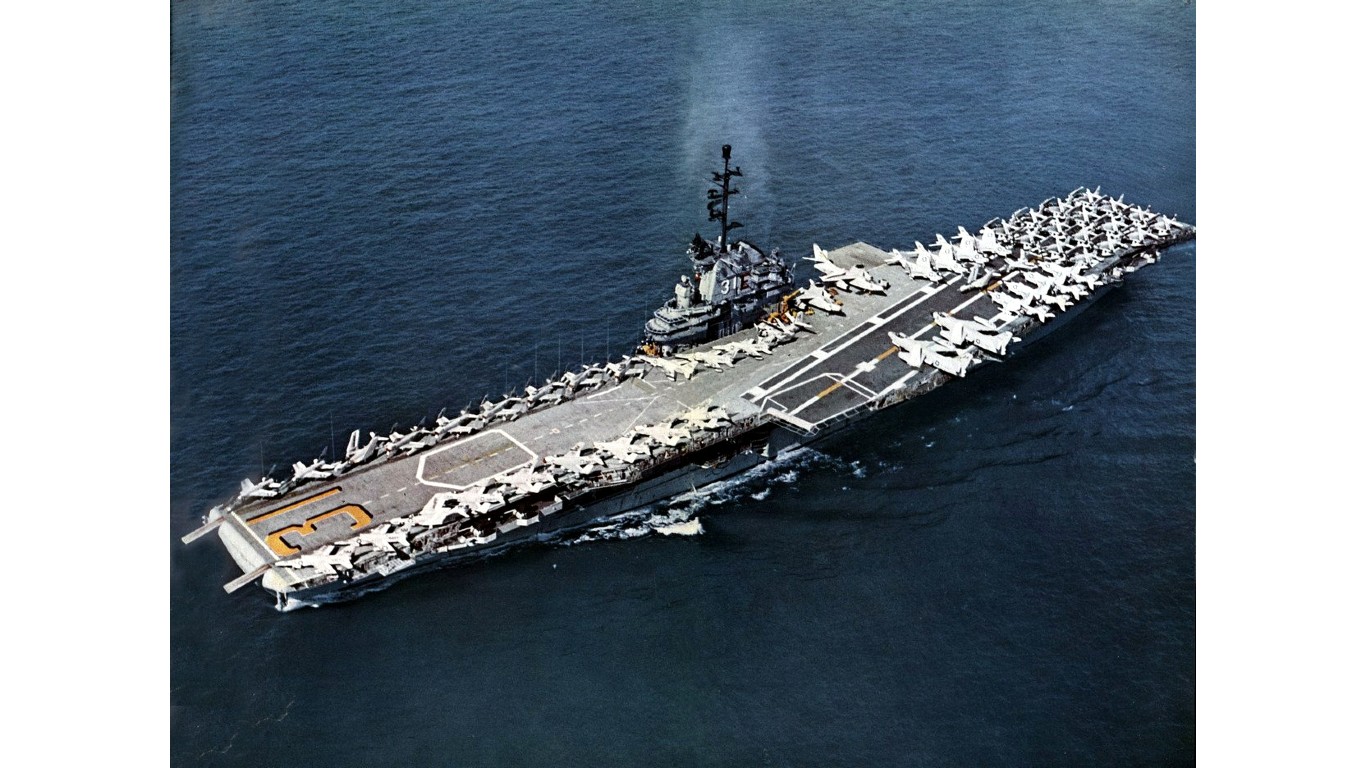
- Class: Essex
- Commissioned: November 26, 1944
- Service life: 26 years, 7 months, and 6 days
- Status: Scrapped in 1992
32. CV-32 Leyte
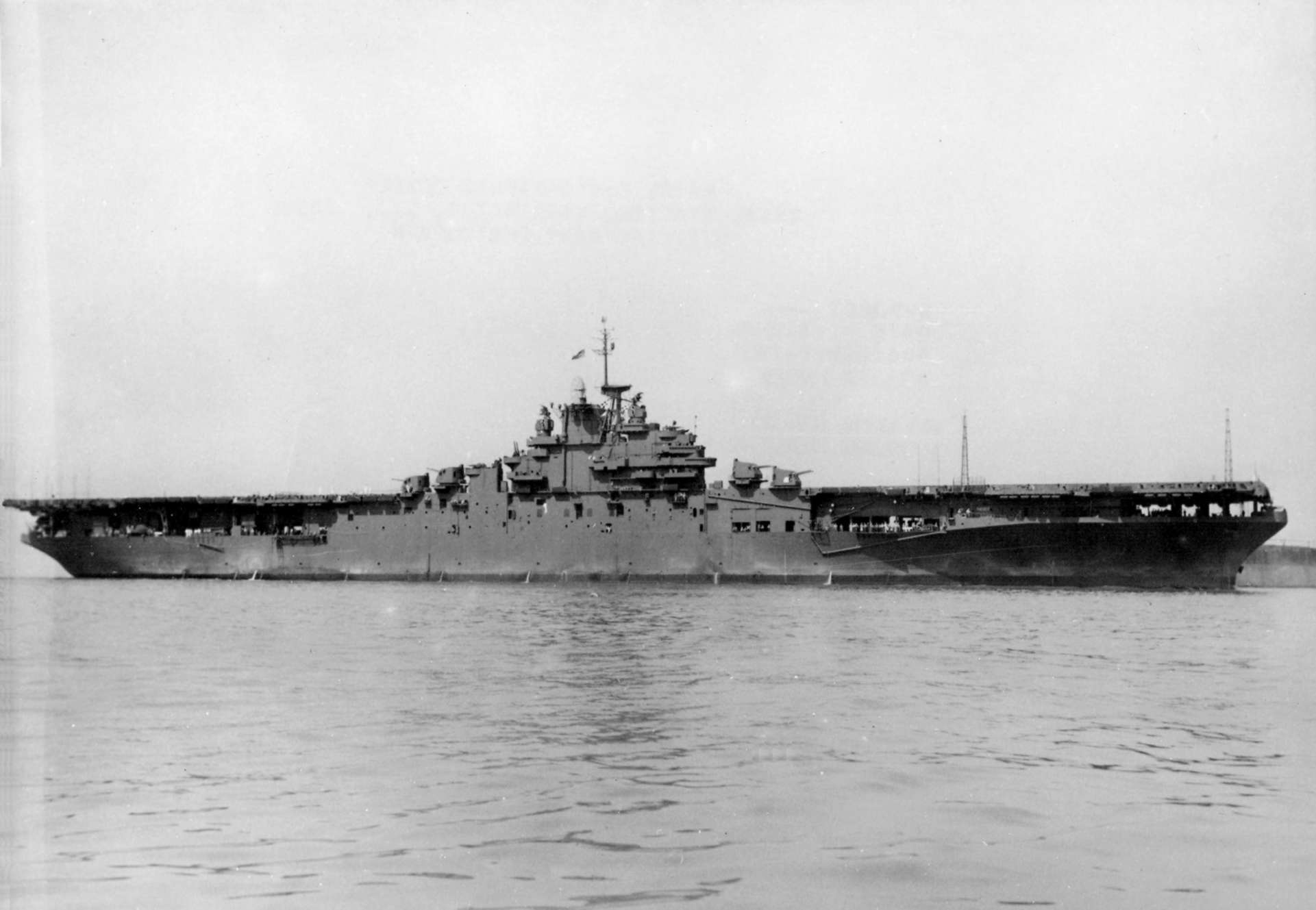
- Class: Essex (extended bow)
- Commissioned: April 11, 1946
- Service life: 13 years, 1 month, and 4 days
- Status: Scrapped in 1970
33. CV-33 Kearsarge
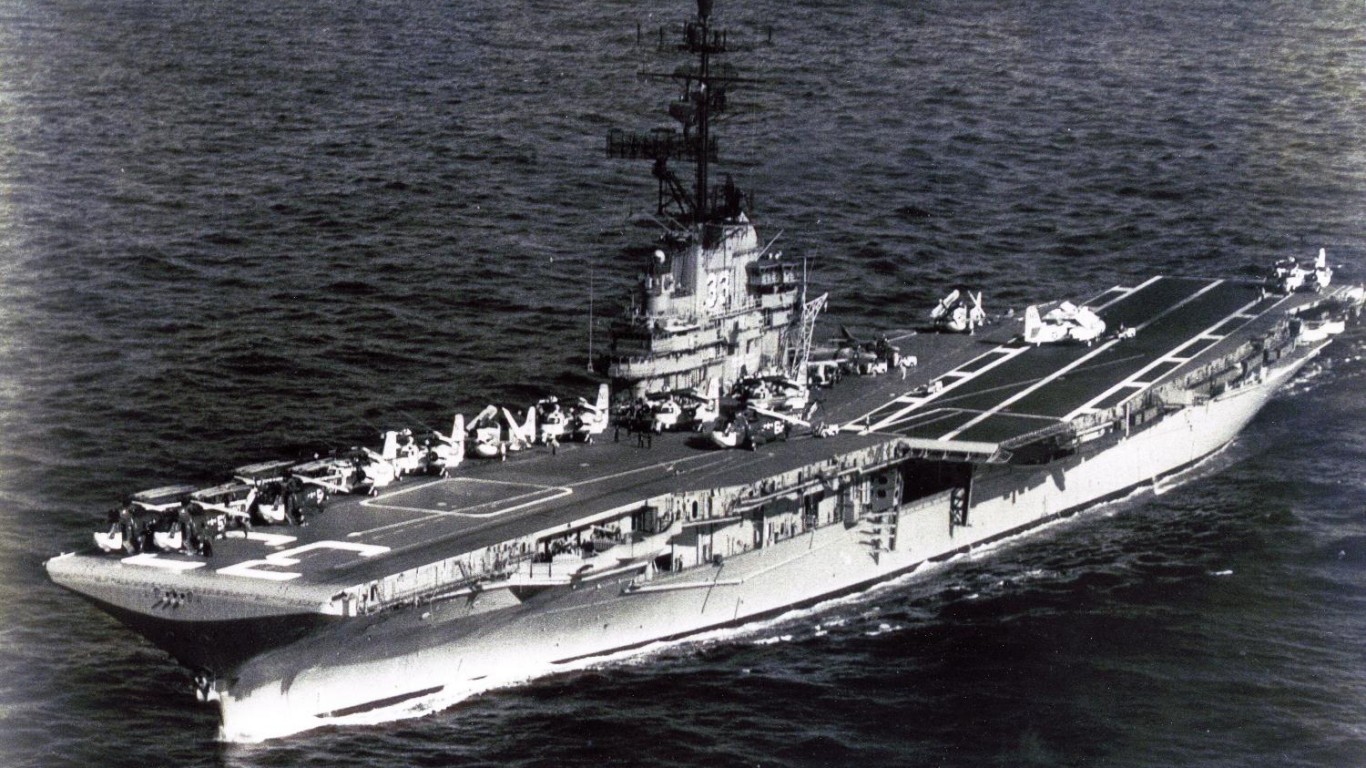
- Class: Essex (extended bow)
- Commissioned: May 2, 1946
- Service life: 23 years, 8 months, and 13 days
- Status: Scrapped in 1974
Take This Retirement Quiz To Get Matched With An Advisor Now (Sponsored)
Are you ready for retirement? Planning for retirement can be overwhelming, that’s why it could be a good idea to speak to a fiduciary financial advisor about your goals today.
Start by taking this retirement quiz right here from SmartAsset that will match you with up to 3 financial advisors that serve your area and beyond in 5 minutes. Smart Asset is now matching over 50,000 people a month.
Click here now to get started.
Thank you for reading! Have some feedback for us?
Contact the 24/7 Wall St. editorial team.
